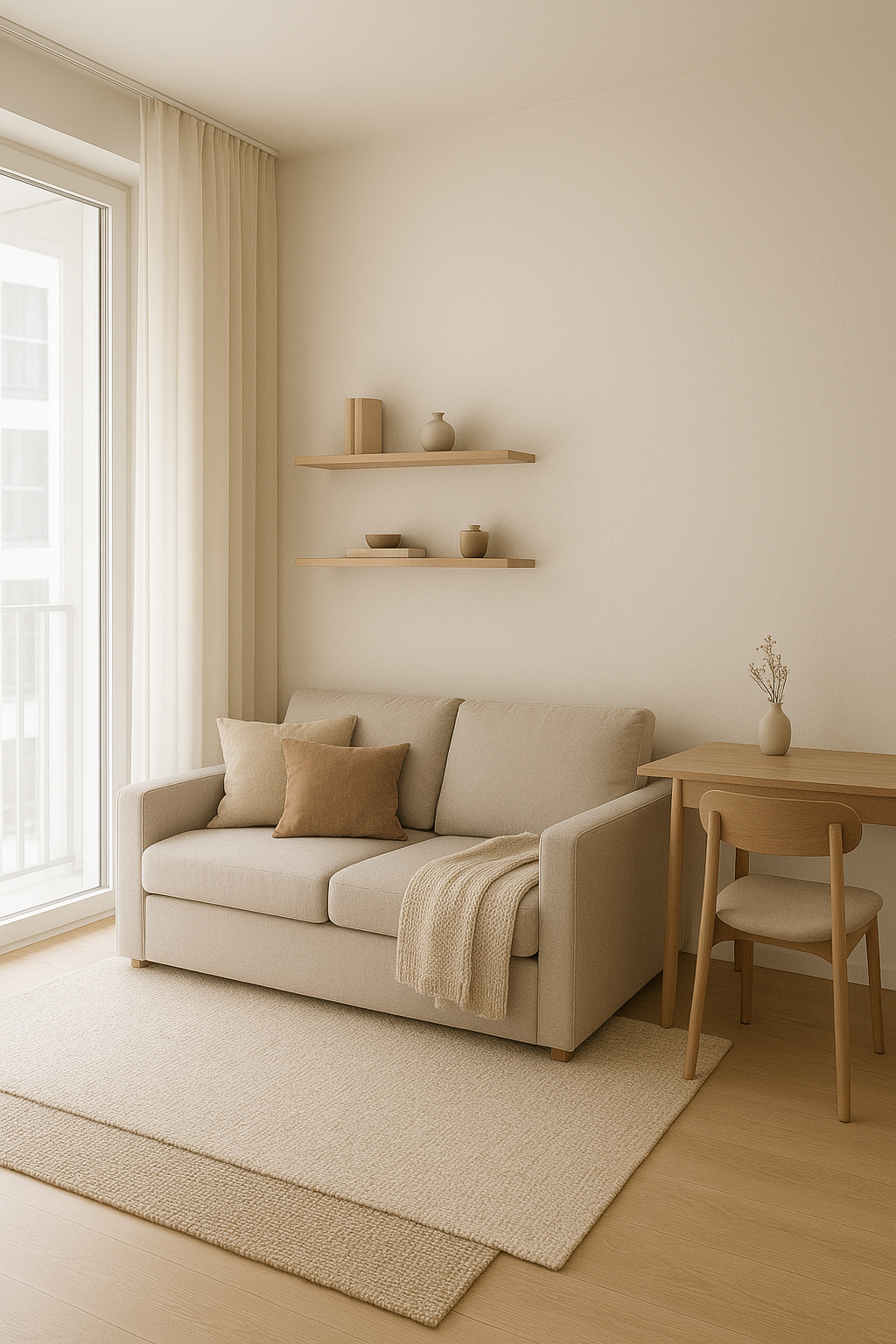
Small Space Living: Smart Ideas to Maximize Style and Function
Living in a compact home doesn’t mean you have to compromise on comfort or style. In fact, with the right planning, small space living can be both beautiful and practical. Whether you’re in a studio apartment, a tiny home, or just a cozy city flat, smart design choices make all the difference. From multifunctional furniture to clever storage hacks, here are creative ways to transform limited square footage into a stylish and functional retreat.
1. Smart Storage Solutions
One of the biggest challenges of small space living is storage. The secret is to think vertically and use every nook and cranny. Floating shelves, under-bed drawers, and wall-mounted cabinets can free up valuable floor space. Consider furniture with hidden storage, like ottomans that double as bins or coffee tables with shelves underneath.
Another great hack is using over-the-door organizers for shoes, cleaning supplies, or pantry items. By keeping things off the floor and neatly tucked away, your space instantly feels more open and airy.
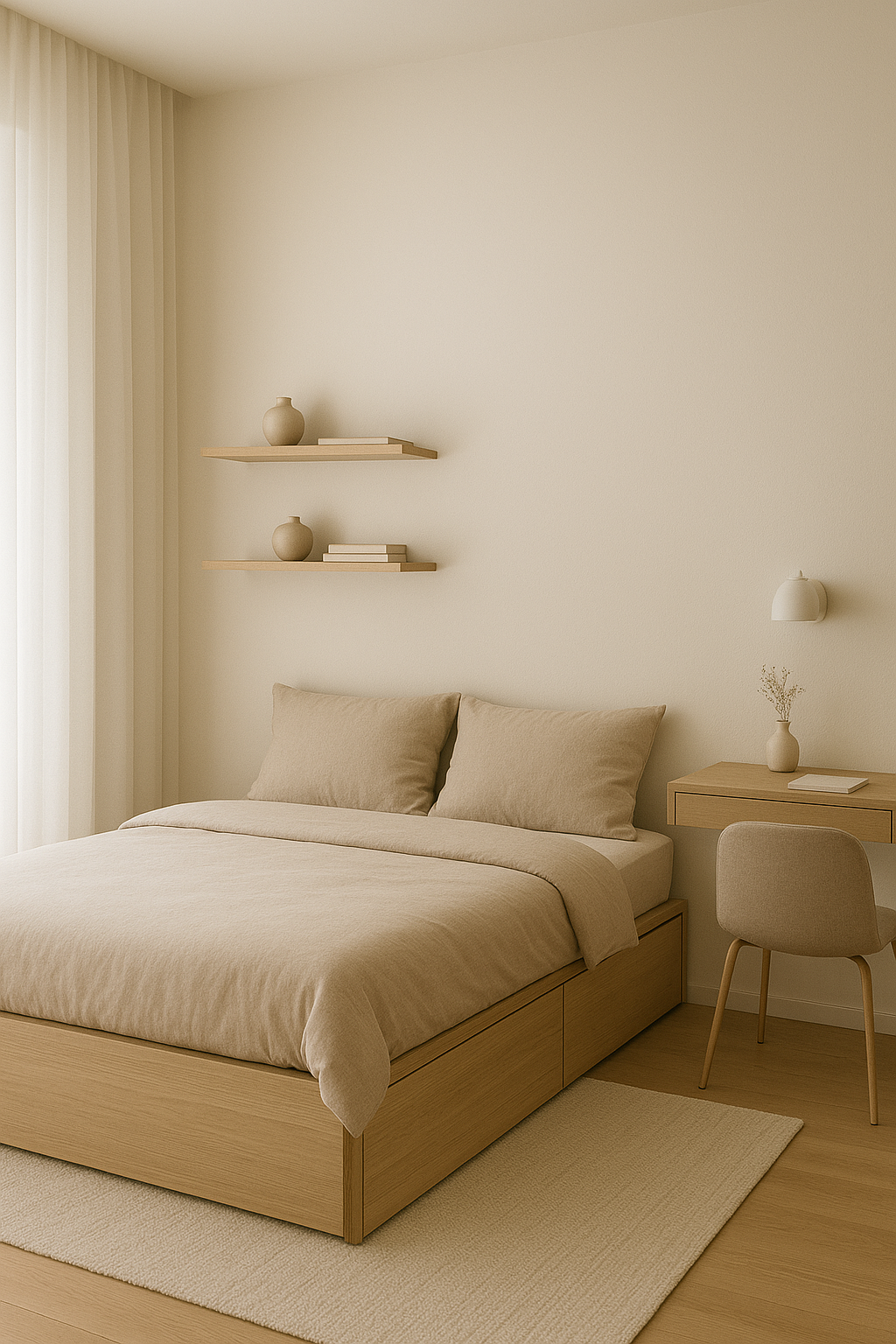
2. Small Living Room Layouts That Work
When it comes to designing a small living room, every inch counts. A slim sofa against the wall can save space while creating a comfortable seating area. Nesting coffee tables are a stylish solution—they can be spread out when needed and tucked away when not.
Using light-colored rugs and sheer curtains helps reflect light, making the room appear larger. Adding mirrors is another classic trick for giving the illusion of more space. Finally, incorporating greenery like potted plants adds freshness without overwhelming the layout.
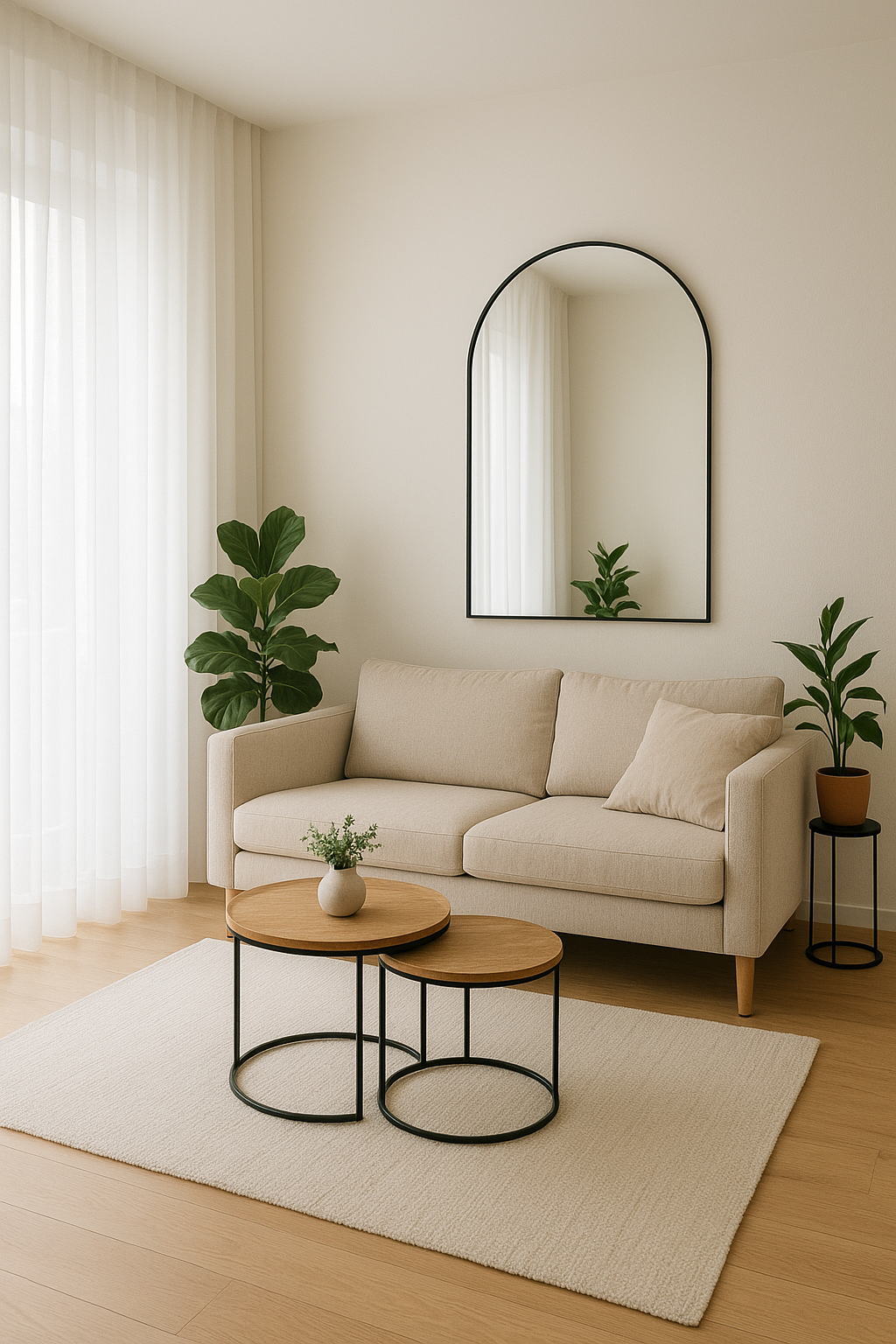
3. Creating a Cozy Small Bedroom
A bedroom should feel like a peaceful retreat, no matter its size. For small bedrooms, choose a bed with built-in storage drawers or opt for a loft-style bed to free up floor space underneath. Wall-mounted lamps or sconces can replace bulky bedside tables, leaving more room for movement.
Layering soft textiles—like plush throws, pastel bedding, and rugs—adds comfort and personality. Keeping a cohesive color palette of neutrals and soft tones will make the room feel calm and airy.
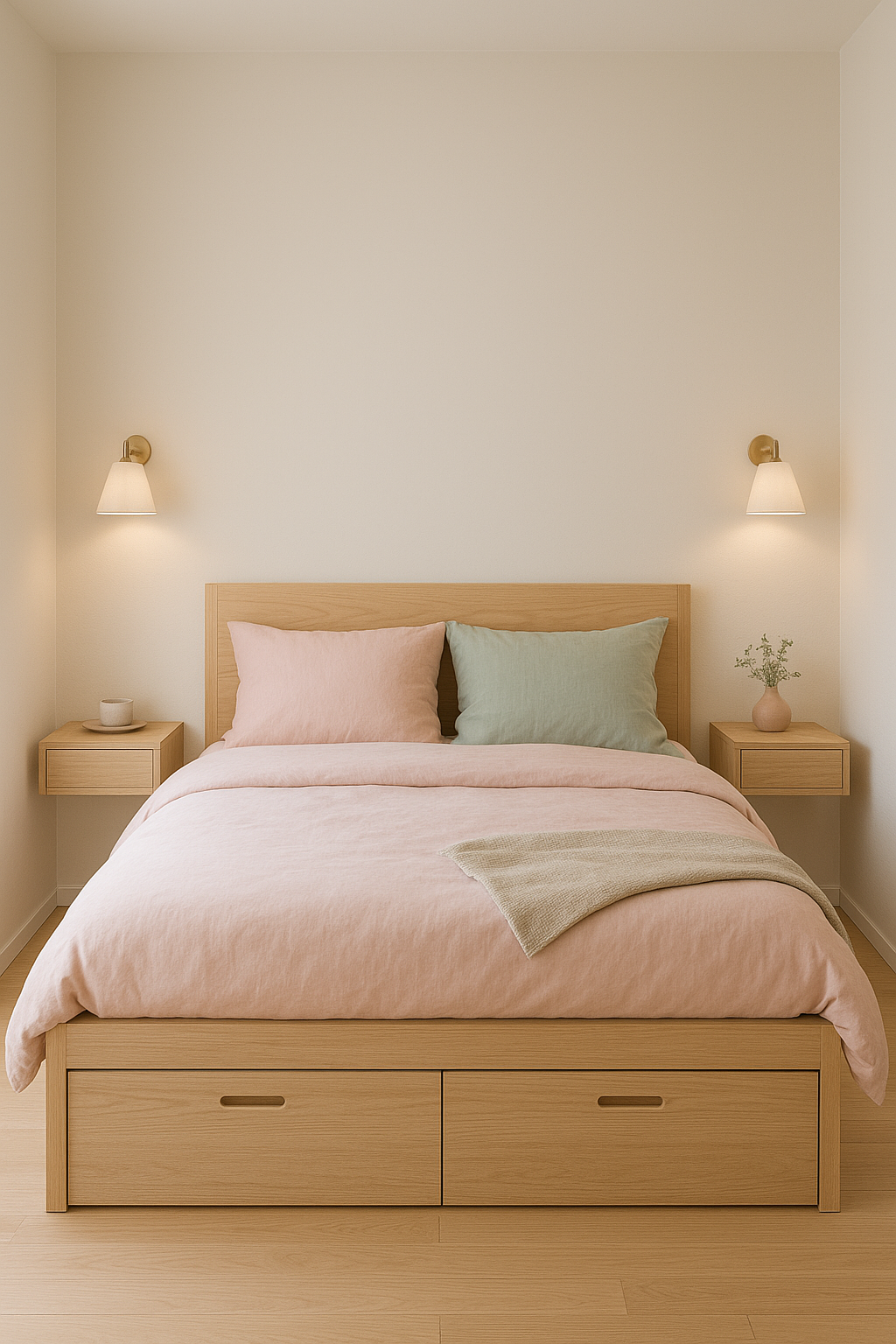
4. Designing a Stylish Small Kitchen
Even a compact kitchen can be both functional and chic. Use vertical wall space with open shelves or pegboards for storing utensils, pots, and pans. Magnetic strips for knives and wall-mounted spice racks keep countertops clear and clutter-free.
Under-cabinet lighting not only improves visibility but also makes the kitchen appear larger. Stick with light-colored cabinetry for a spacious feel, and add natural touches like potted herbs for a fresh, cozy vibe.
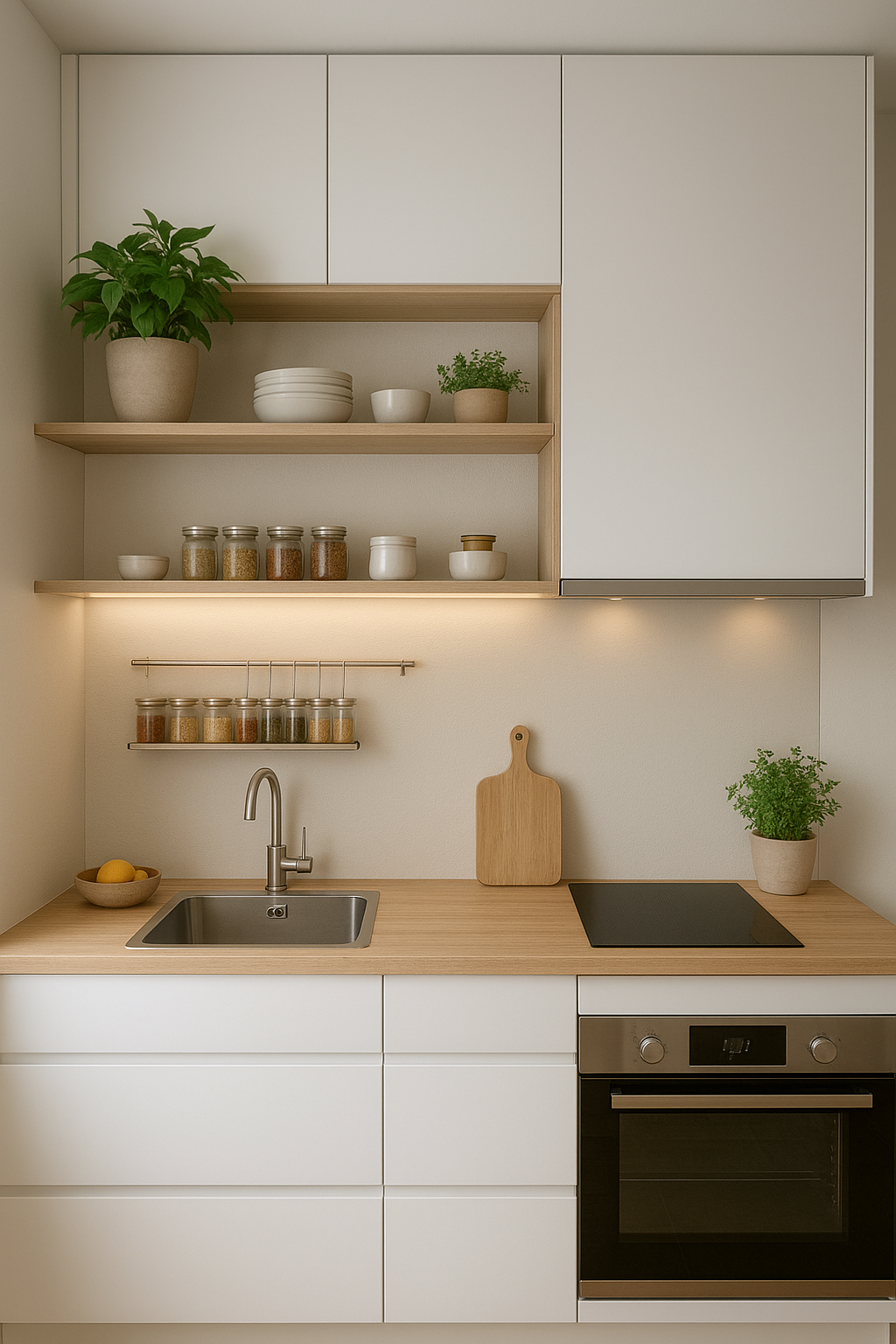
5. Decorating a Tiny Apartment with Personality
A tiny apartment doesn’t mean giving up on personal style. The key is choosing multi-functional furniture, such as a foldable dining table or a sleeper sofa. Adding wall art or a decorative mirror makes the space feel curated and stylish.
Layered rugs and cozy textiles create warmth, while minimal clutter ensures the apartment remains open and inviting. Always prioritize quality over quantity—fewer well-chosen pieces will make your small space feel intentional rather than cramped.
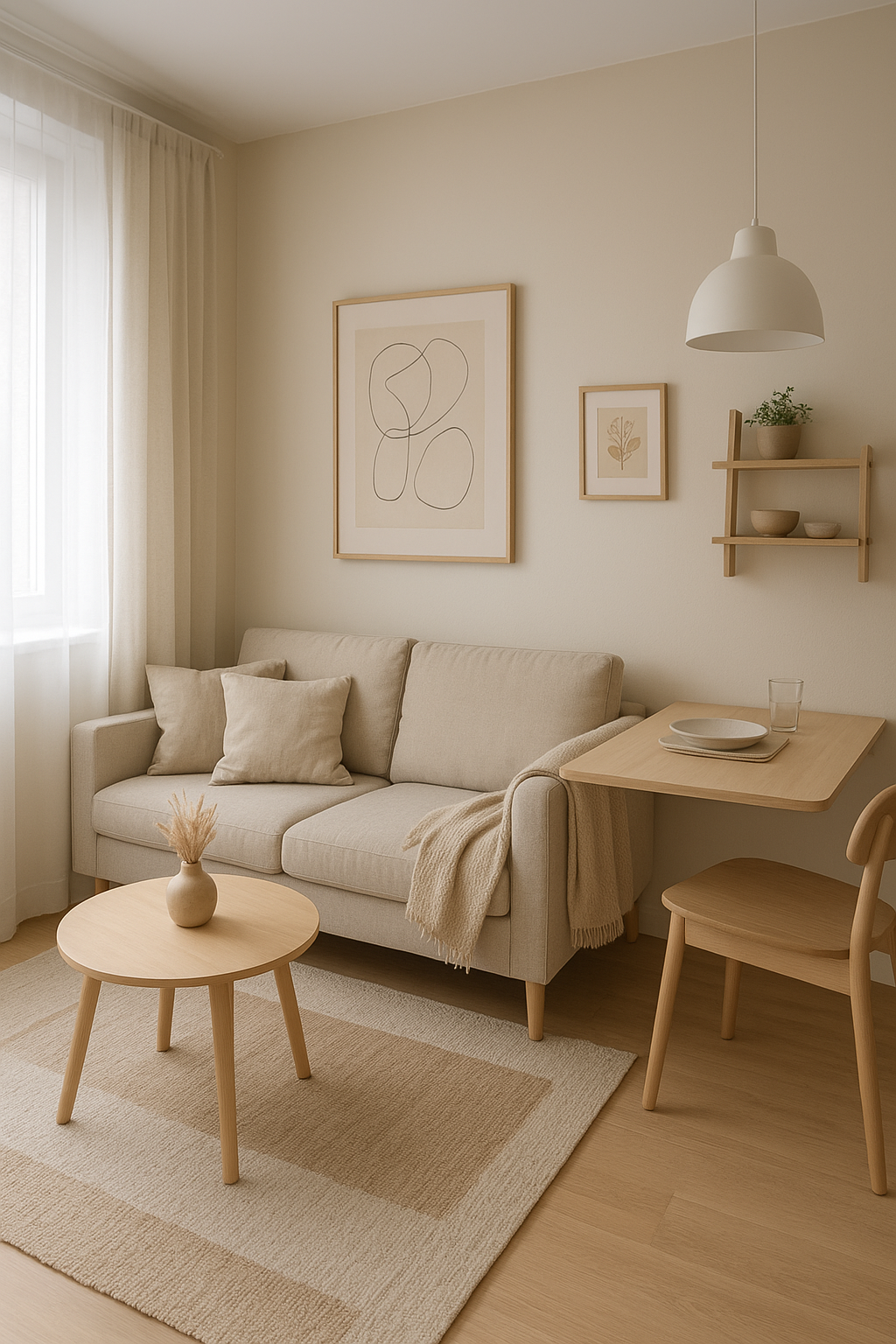
Final Thoughts
Small space living is all about creativity and smart design choices. By maximizing vertical storage, choosing multifunctional furniture, and sticking with a cohesive style, you can turn even the tiniest home into a beautiful, comfortable retreat. Instead of seeing small spaces as a limitation, embrace them as an opportunity to simplify, personalize, and create a cozy environment you’ll love coming home to.
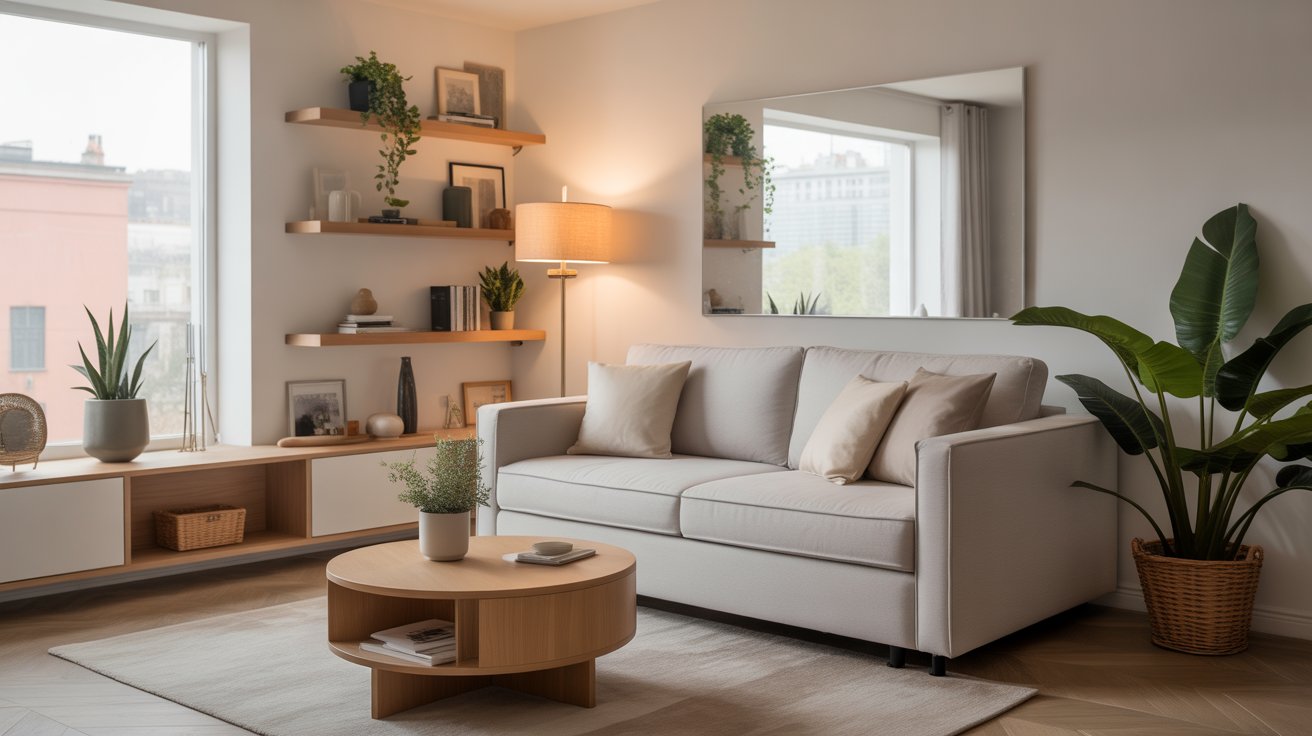
Smart Small Space Living Ideas to Transform Your Home
Living in a compact apartment or tiny house doesn’t mean you have to sacrifice comfort or style. In fact, with the right strategies, you can make the most of every corner and create a home that feels both spacious and inviting. Small space living is all about clever organization, multifunctional furniture, and thoughtful design choices that maximize functionality without clutter. Whether you’re in a studio, condo, or cozy home, these practical ideas will help you transform your compact space into a beautiful retreat.
1. Choose Multipurpose Furniture
One of the best ways to make small rooms more functional is by choosing multipurpose furniture. Think sofa beds, storage ottomans, nesting coffee tables, and fold-out desks. These pieces allow you to switch between functions easily without taking up extra room. For example, a bed with built-in drawers can double as a dresser, while a foldable dining table can act as a desk during the day.
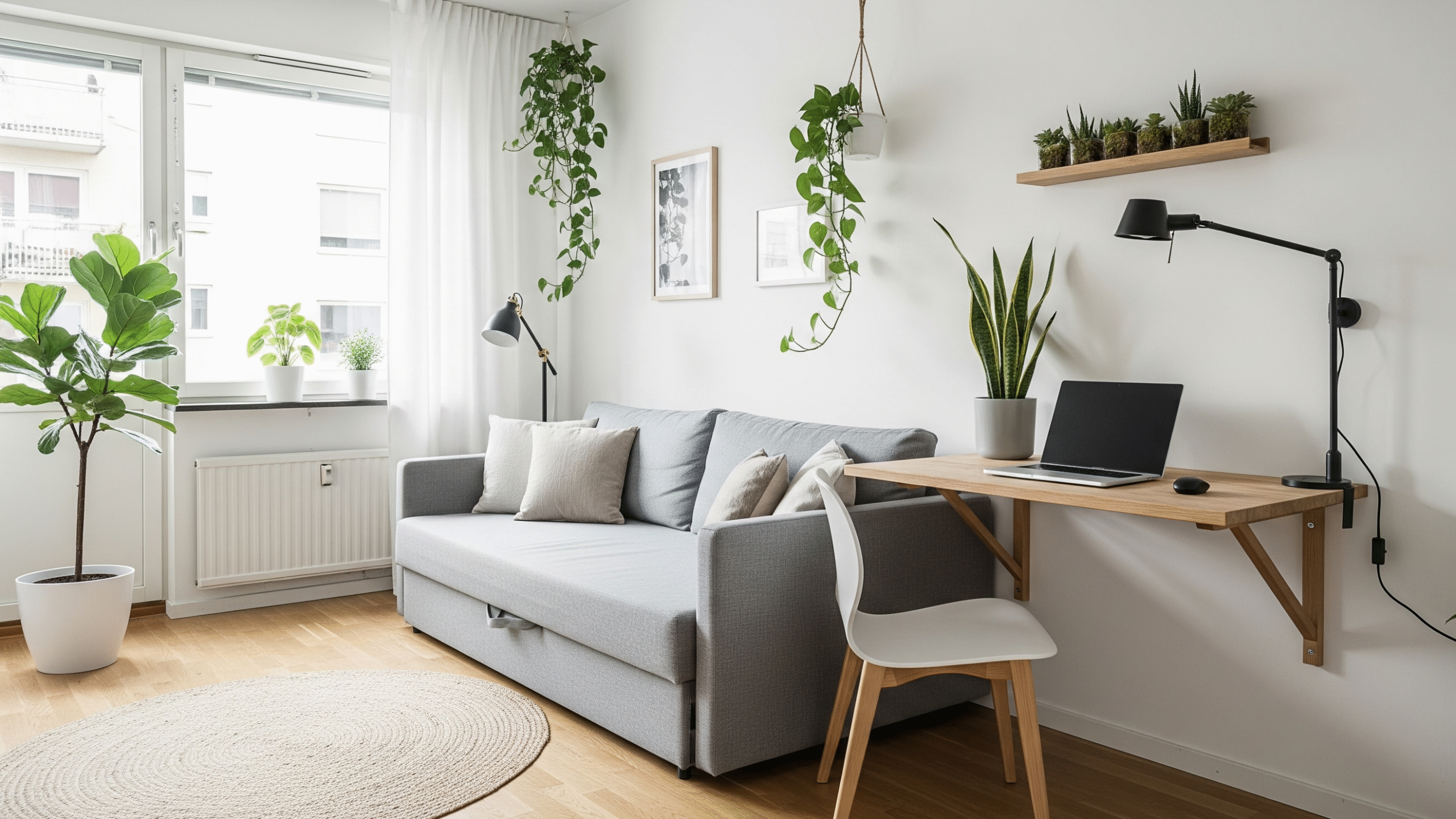
2. Embrace Vertical Storage
When floor space is limited, your walls become your best friend. Vertical storage such as floating shelves, tall bookcases, or wall-mounted cabinets can help you keep clutter at bay while also displaying your favorite décor. Adding hooks and pegboards in the kitchen, entryway, or bedroom is another smart way to save precious floor space while keeping items within reach.
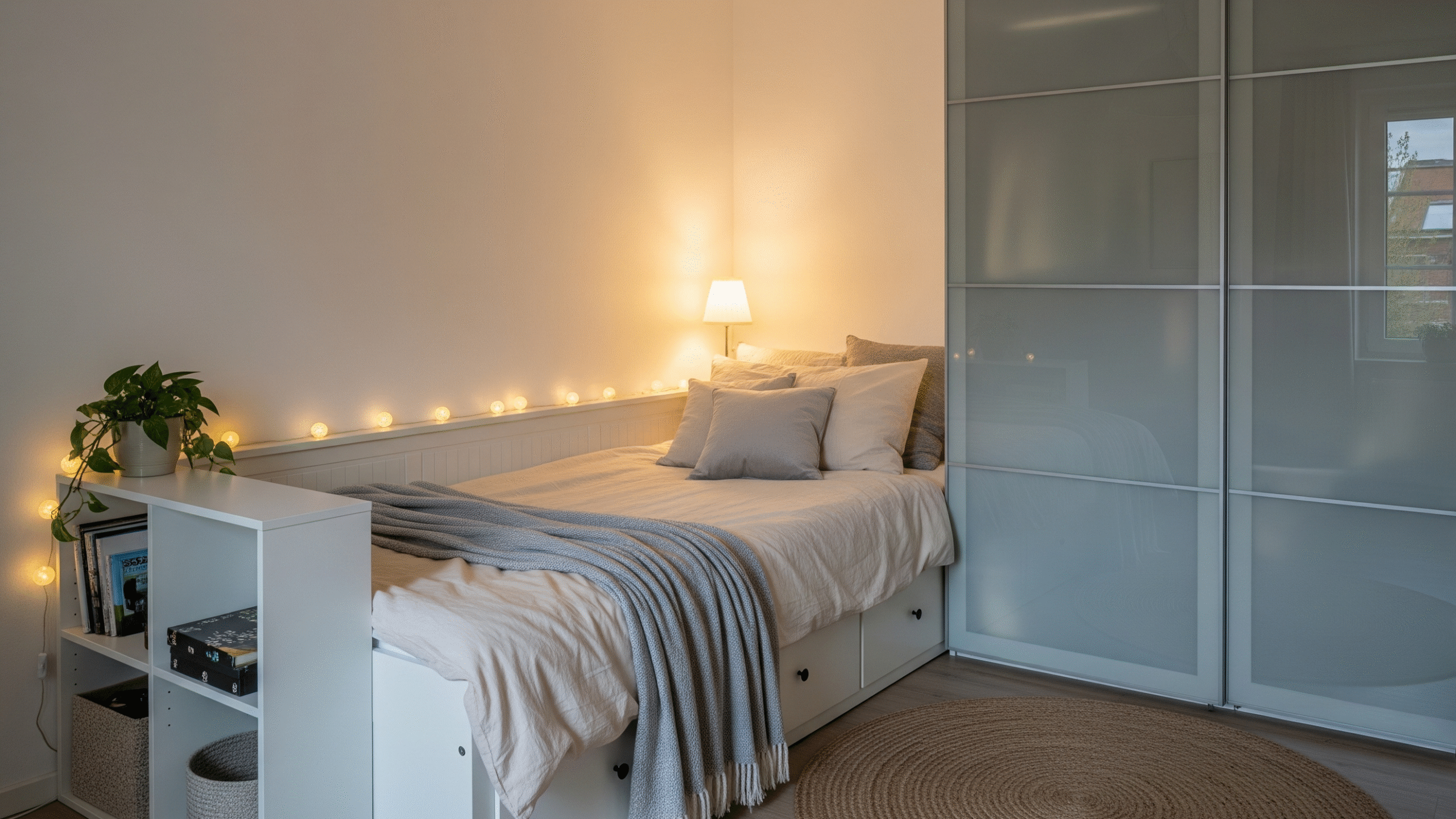
3. Use Light and Mirrors to Create Space
Lighting and mirrors can make a small home feel larger. Large mirrors placed opposite windows reflect natural light and visually double the size of the room. Use light, neutral colors on walls and furniture to make the space feel airy. Incorporating soft, layered lighting with floor lamps, wall sconces, and pendant lights can also add depth and warmth.
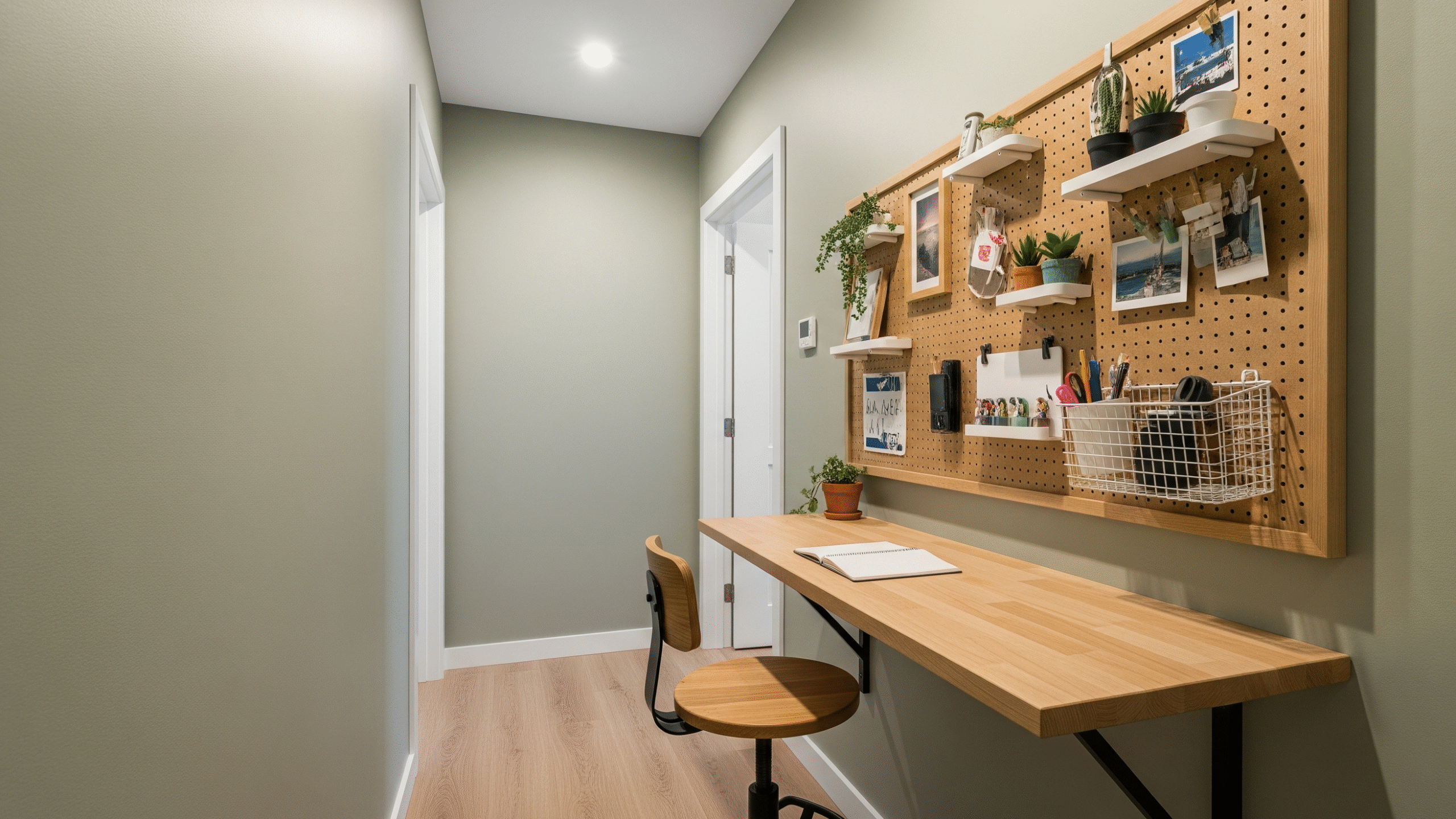
4. Maximize Every Nook and Corner
Small spaces often come with tricky layouts or awkward corners, but these can be transformed into functional zones. Turn a narrow hallway into a mini office with a wall-mounted desk, or use the area under your stairs for storage. Window seats with hidden compartments are another brilliant way to add both seating and storage.
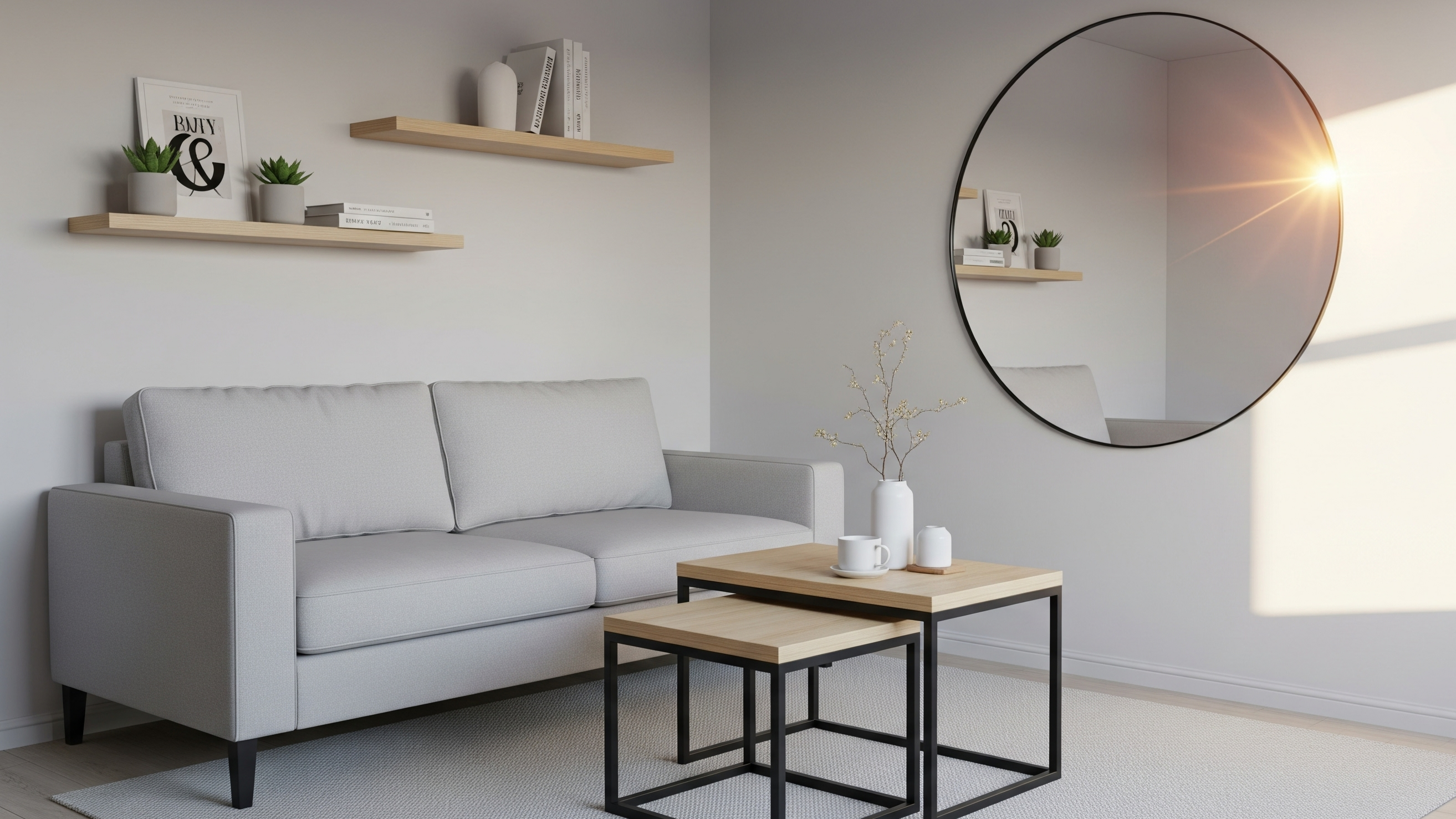
5. Keep Décor Minimal and Functional
Clutter is the enemy of small space living. Instead of filling your home with unnecessary décor, focus on functional accents that also serve a purpose. For example, woven baskets add warmth while doubling as storage, and decorative wall hooks can hold bags, hats, or coats. A “less is more” approach will make your home feel cozy yet uncluttered.

6. Create Defined Zones in Open Layouts
If you’re living in a studio or open-plan home, dividing your space into zones helps maintain order. Use area rugs, bookshelves, or folding screens to separate the living, sleeping, and dining areas. Even small distinctions like placing a tall plant between the sofa and bed can make the space feel more organized and functional.
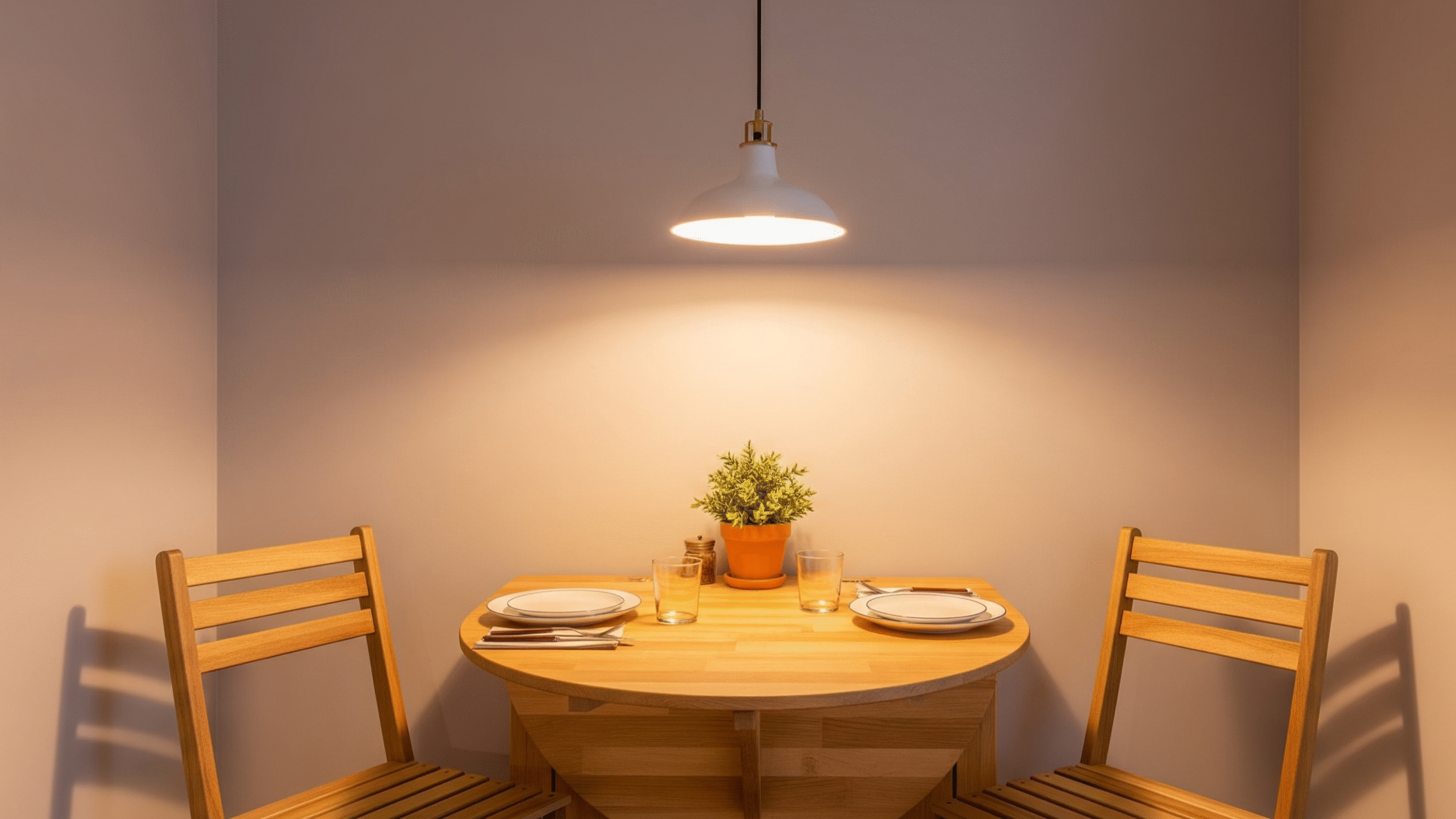
7. Optimize the Kitchen for Efficiency
Small kitchens can be stylish and practical with a few adjustments. Use magnetic strips for knives, add open shelves for frequently used dishes, and install a foldable breakfast bar to save space. Slim appliances designed for compact living can also make a big difference, giving you all the functionality you need without overcrowding the room.
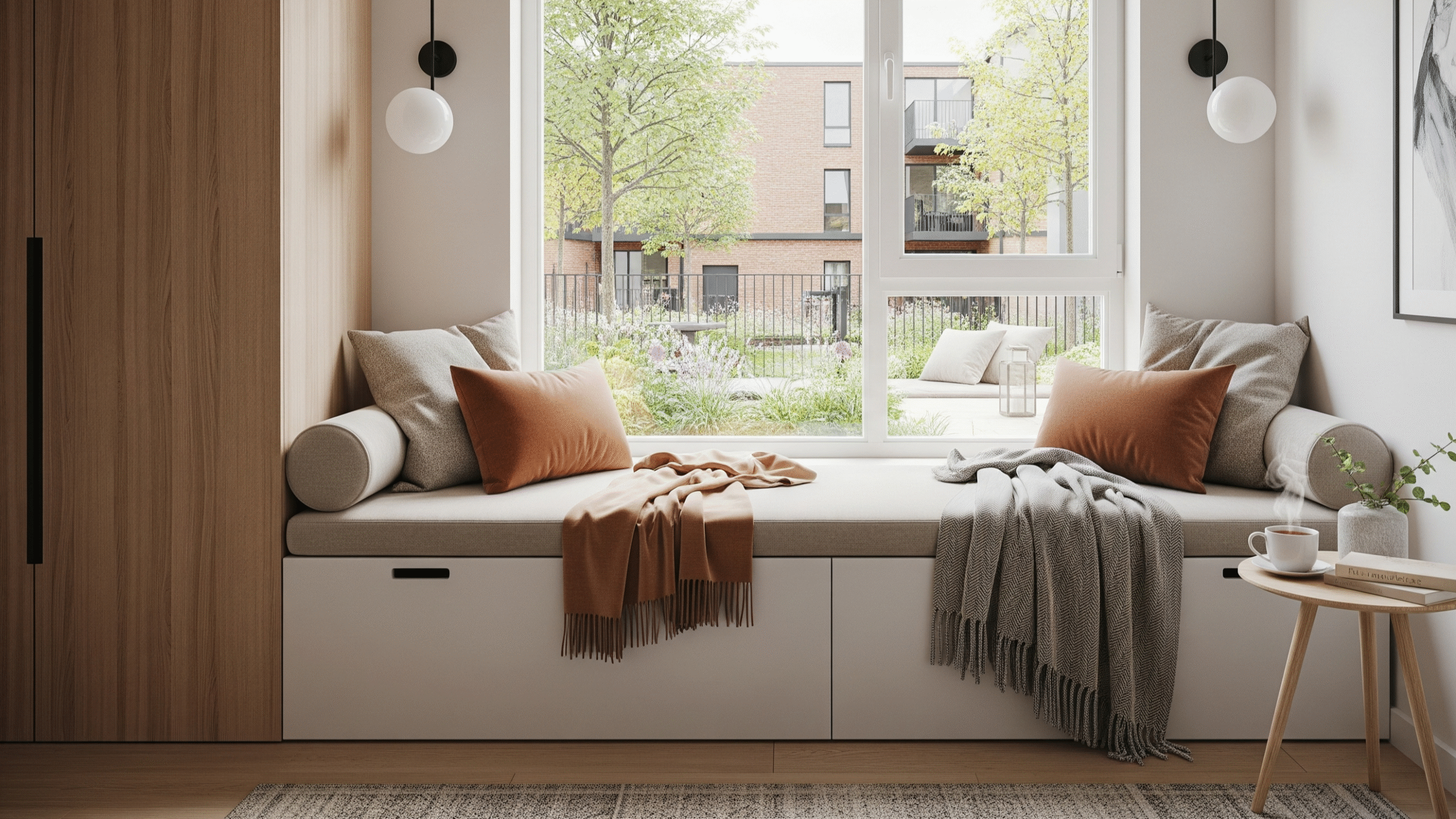
8. Bring the Outdoors In
Plants are a wonderful way to add freshness and life to a small home. Choose hanging planters, wall-mounted pots, or small indoor trees that won’t take up much floor space. Greenery not only improves air quality but also makes compact spaces feel brighter and more welcoming.
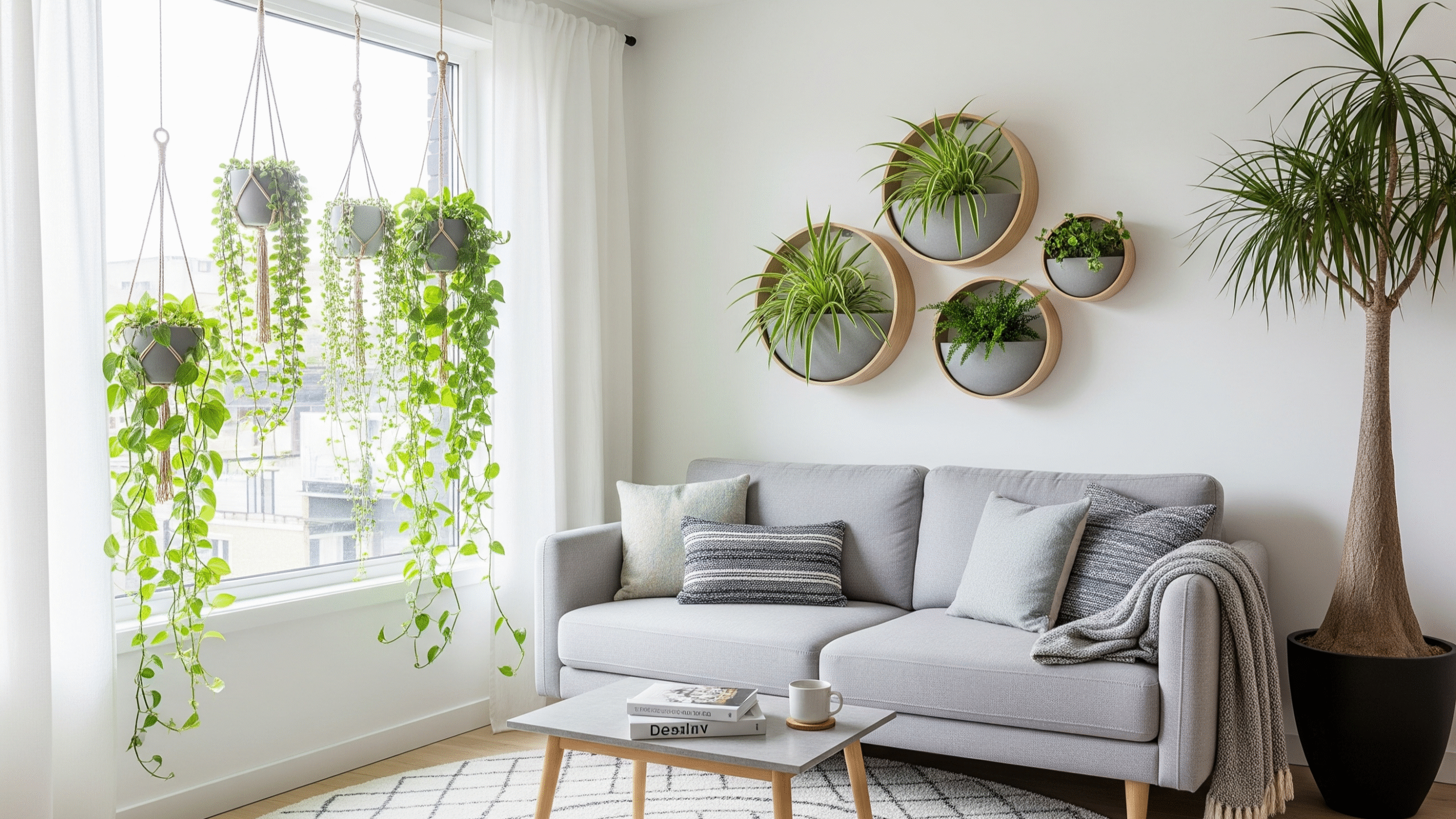
9. Stay Organized with Hidden Storage
The secret to thriving in small space living is staying organized. Hidden storage solutions—like ottomans with lids, beds with drawers, or benches with compartments—help you tuck away clutter while maintaining a clean, stylish look.
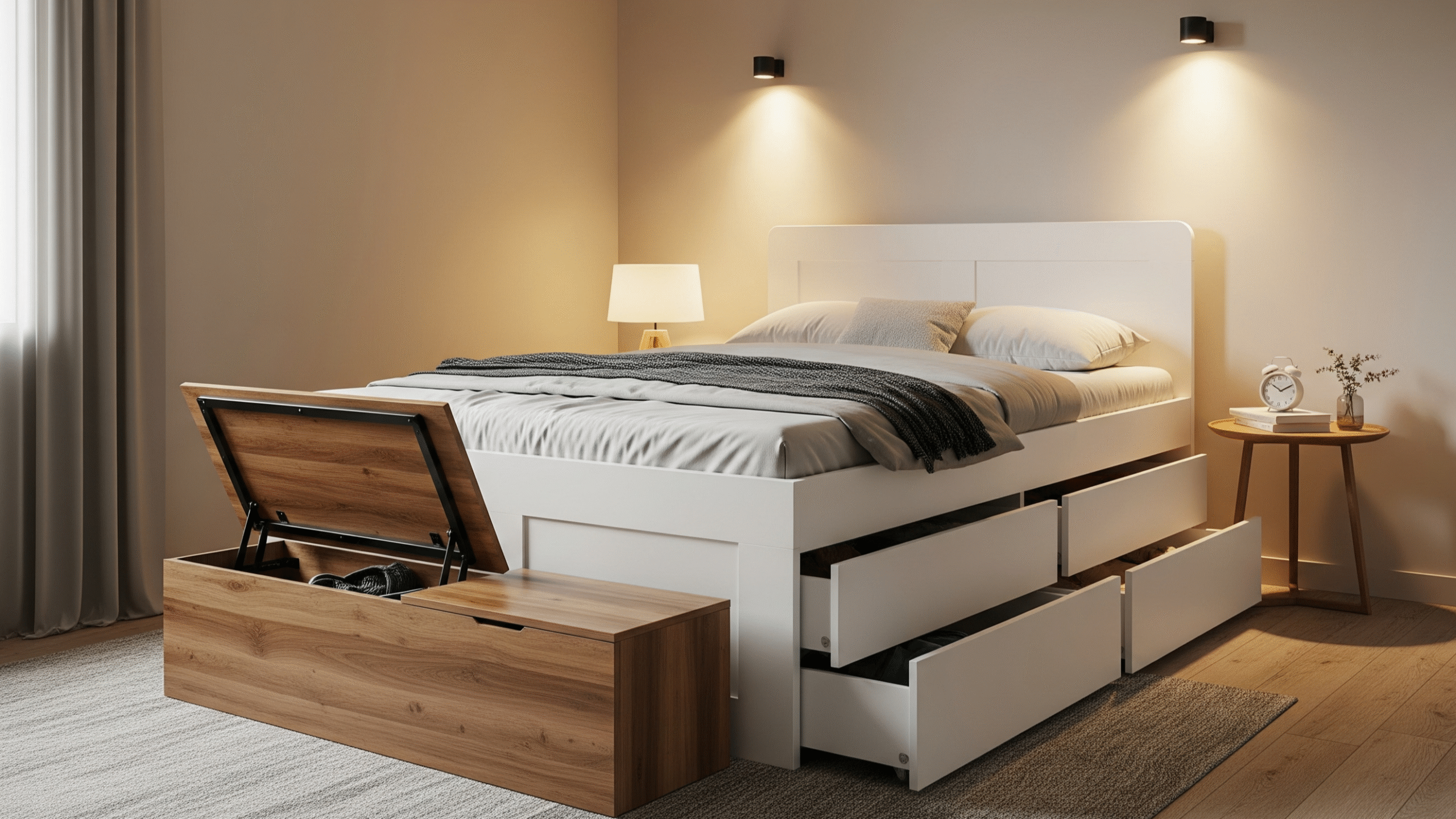
Final Thoughts
With the right strategies, small homes can be just as functional and beautiful as larger ones. By combining smart furniture choices, creative storage, and minimal yet thoughtful décor, you can transform even the tiniest apartment into a cozy and stylish haven. Remember, small space living isn’t about limiting yourself—it’s about living smarter, simpler, and more intentionally.
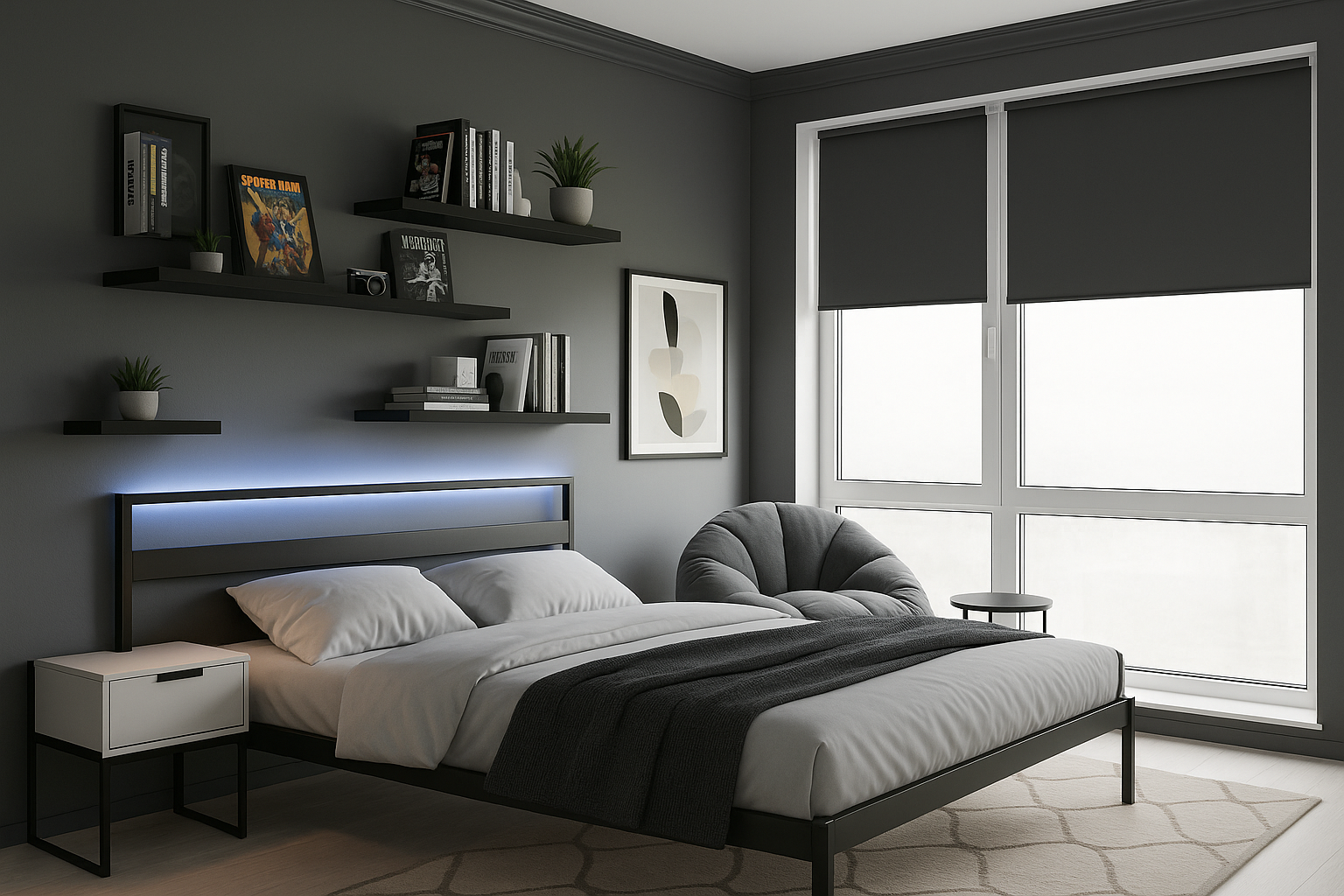
Stylish Ideas for a Cozy and Functional Space
When it comes to creating a peaceful and stylish retreat, a modern minimalist bedroom offers the perfect balance between simplicity, comfort, and elegance. By combining clean lines, neutral tones, and carefully chosen decor, you can design a bedroom that not only looks stunning but also helps you relax and recharge.
In this article, we’ll explore how to bring a modern minimalist bedroom to life, focusing on furniture choices, lighting, color schemes, and decor tips to make your space both cozy and functional.
1. Start with a Neutral Color Palette
A modern minimalist bedroom thrives on a calm and neutral base. Think shades of white, gray, beige, and soft blacks. These tones create a serene backdrop that makes the room feel open and airy. Darker accent colors, such as charcoal or deep navy, can be introduced through decor items like blankets, pillows, or wall art to add depth and contrast.
When painting the walls, consider a soft matte finish for a more sophisticated and cozy feel. In the featured design, a deep charcoal wall behind the bed sets the tone, adding drama without overwhelming the space.
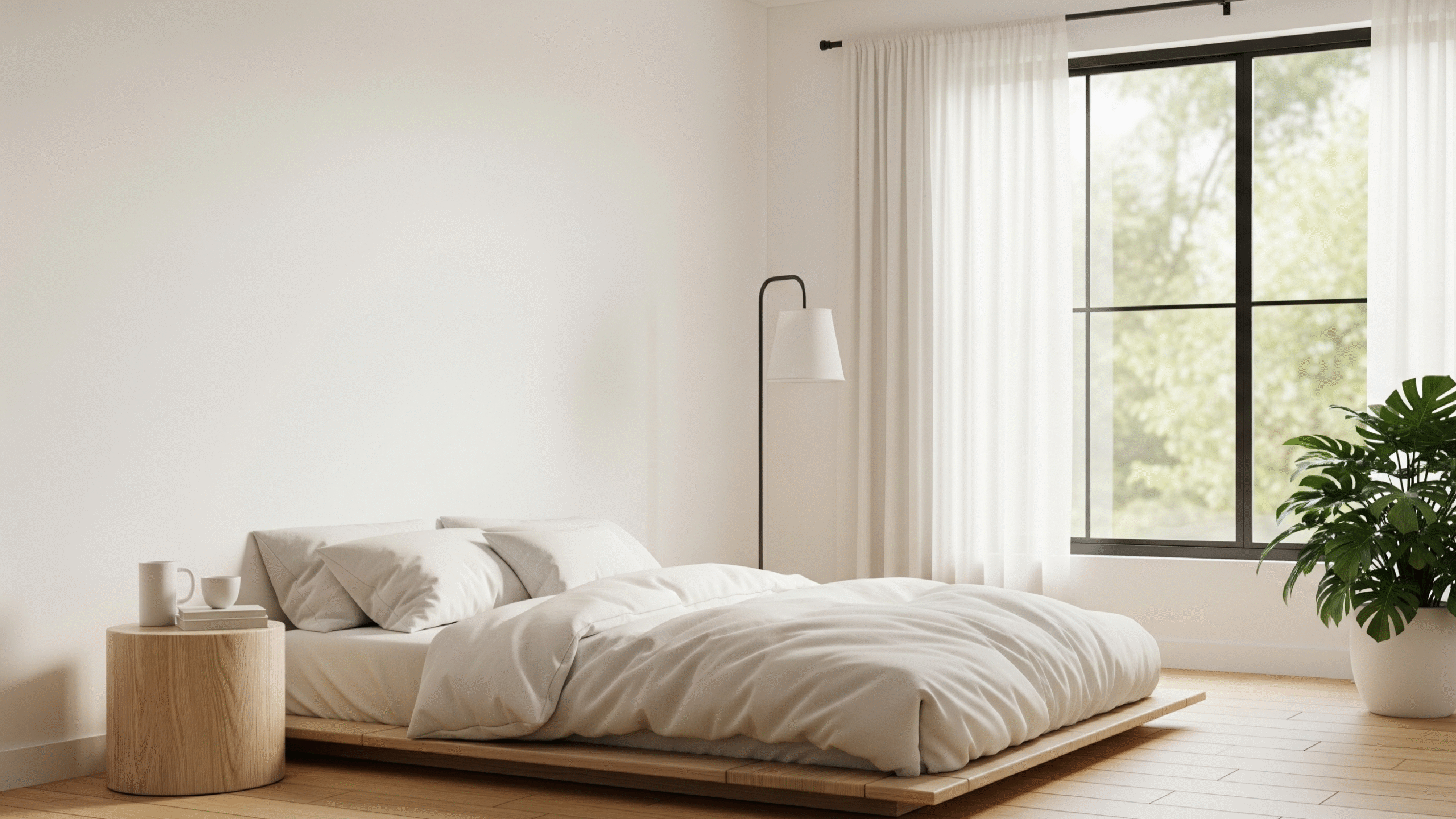
2. Choose Functional Furniture
Minimalism emphasizes quality over quantity. In a modern minimalist bedroom, every furniture piece should serve a purpose while contributing to the overall style. Opt for a sleek bed frame with clean lines, floating nightstands, or wall-mounted shelves to maximize floor space.
The bed should be the star of the room — choose one with a simple headboard or an integrated lighting feature, like LED strips, for a soft glow at night. Floating shelves above the bed can hold books, plants, or small art pieces without cluttering the room.
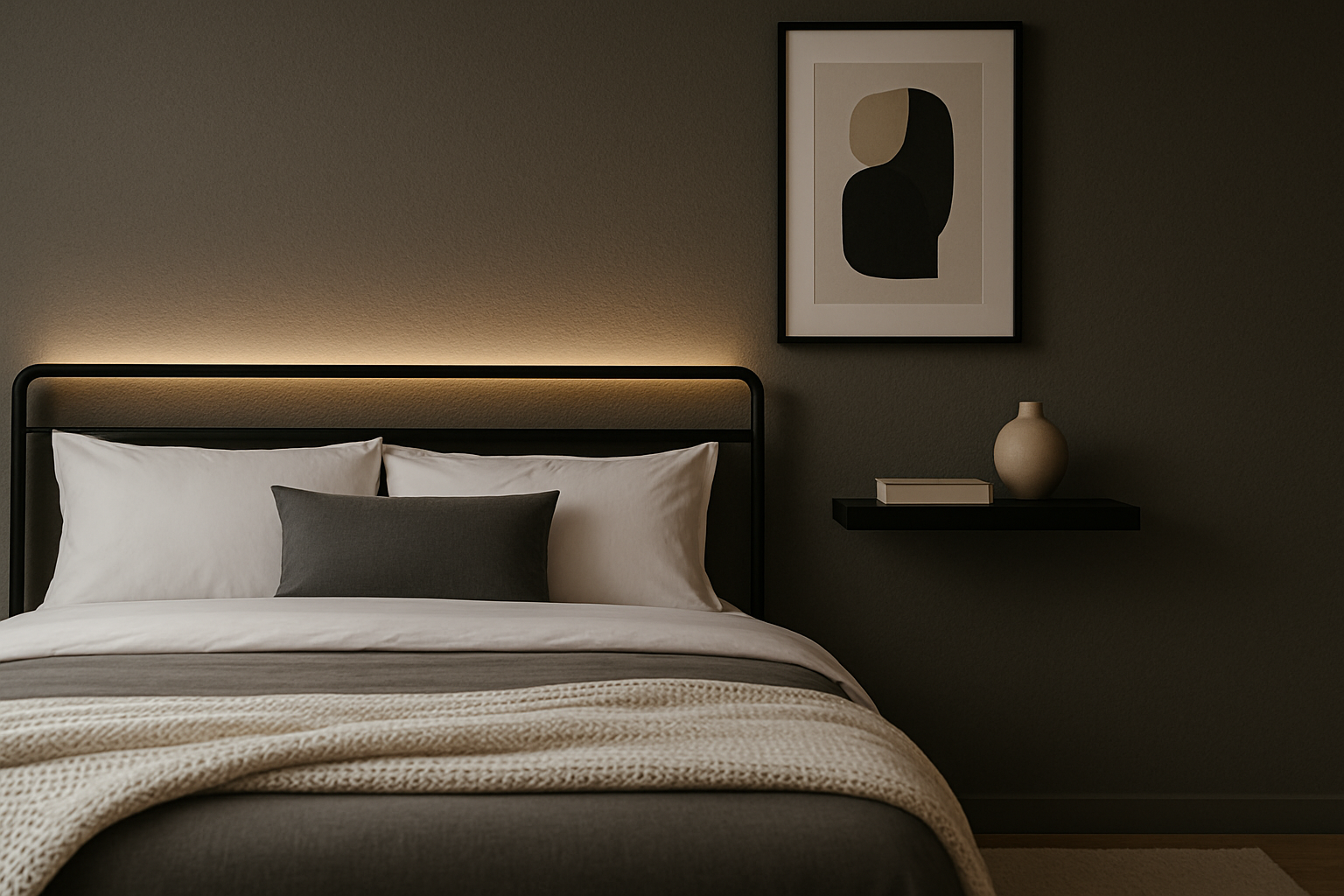
3. Layer Your Textures for Comfort
While minimalism favours simplicity, it should never feel cold or bare. Adding layers of texture brings warmth and personality to the room. A knit throw blanket, linen bedding, and a textured area rug can make the space inviting.
In the featured design, a geometric-pattern rug adds subtle visual interest to the light wooden flooring, while the plush, oversized reading chair by the window offers a cozy spot for relaxing with a book.
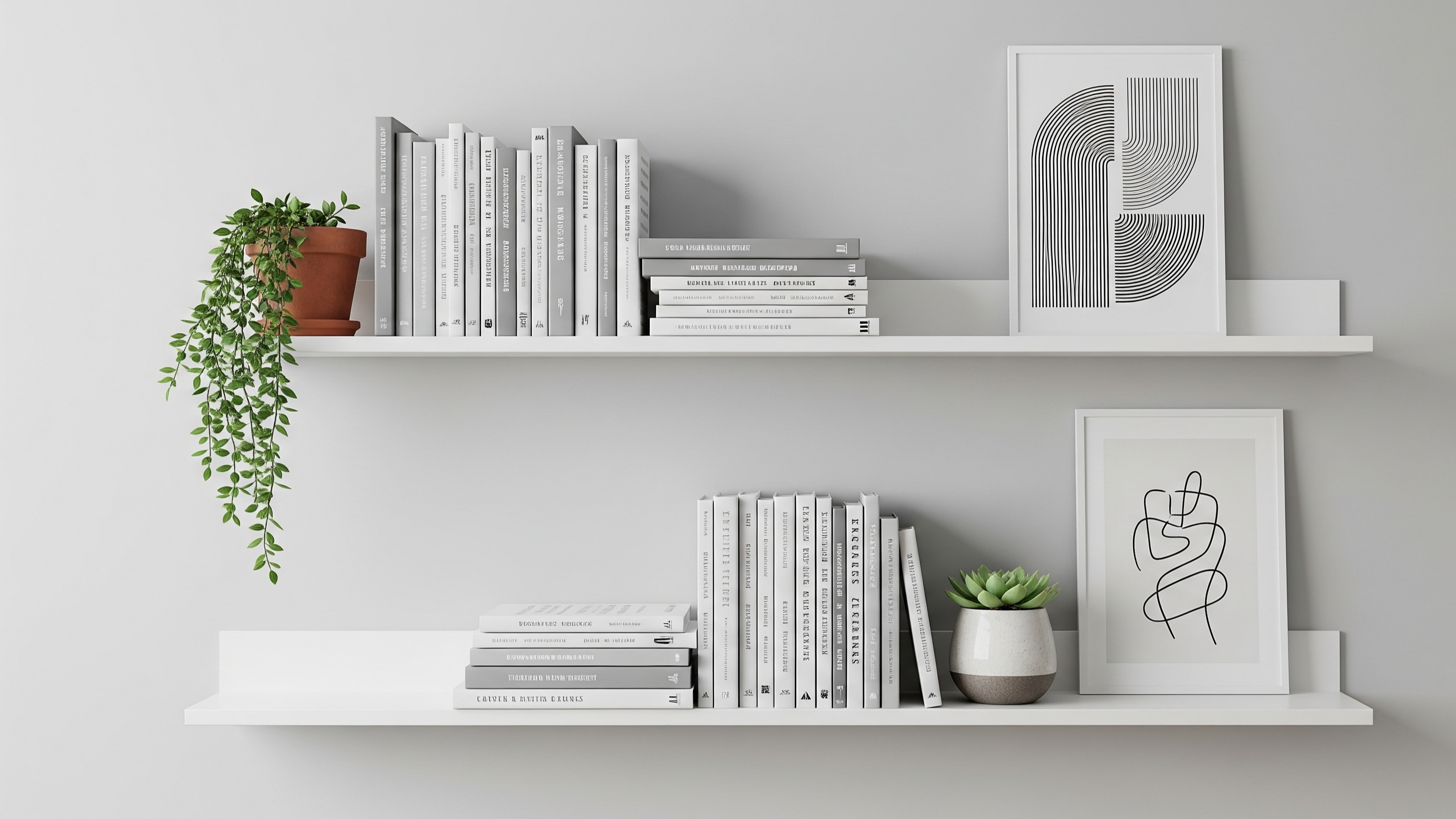
4. Keep Decor Simple but Impactful
Decor in a modern minimalist bedroom should be intentional. Instead of filling shelves with random objects, curate your display with meaningful items. A few art books, a potted plant, and a piece of abstract wall art can be enough to add character.
Artwork works best in neutral tones or monochrome palettes, as seen in the abstract print above the chair in the inspiration room. This maintains the minimalist aesthetic while adding personality.
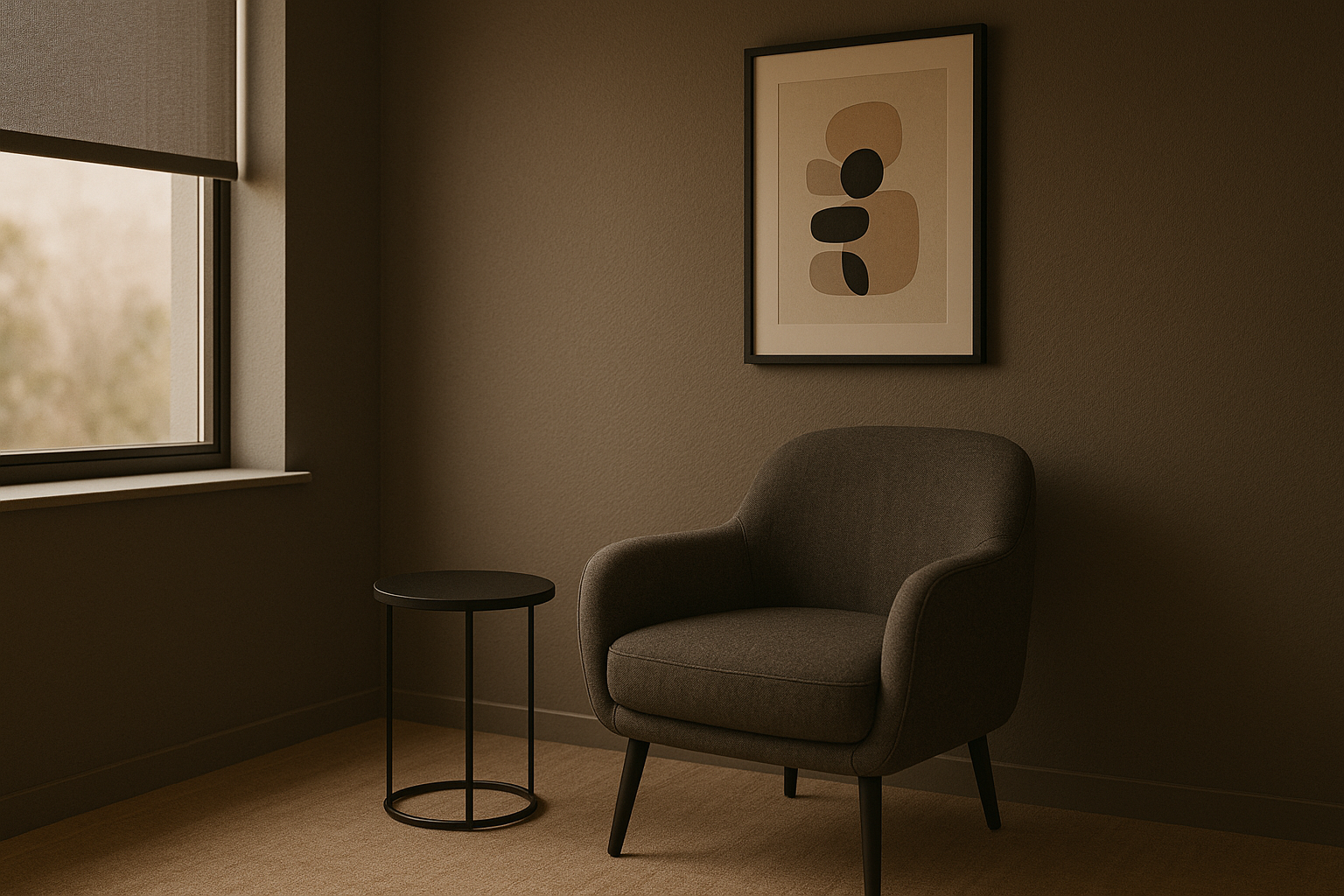
5. Maximize Natural Light
Natural light enhances the airy feel of a modern minimalist bedroom. Large windows with simple roller blinds or sheer curtains let sunlight flood the room during the day while offering privacy when needed. Positioning your reading nook by the window is an excellent way to take advantage of daylight for reading or relaxing.
If natural light is limited, use layered lighting. Wall sconces, LED strips, and bedside lamps can create a warm and welcoming atmosphere in the evening.
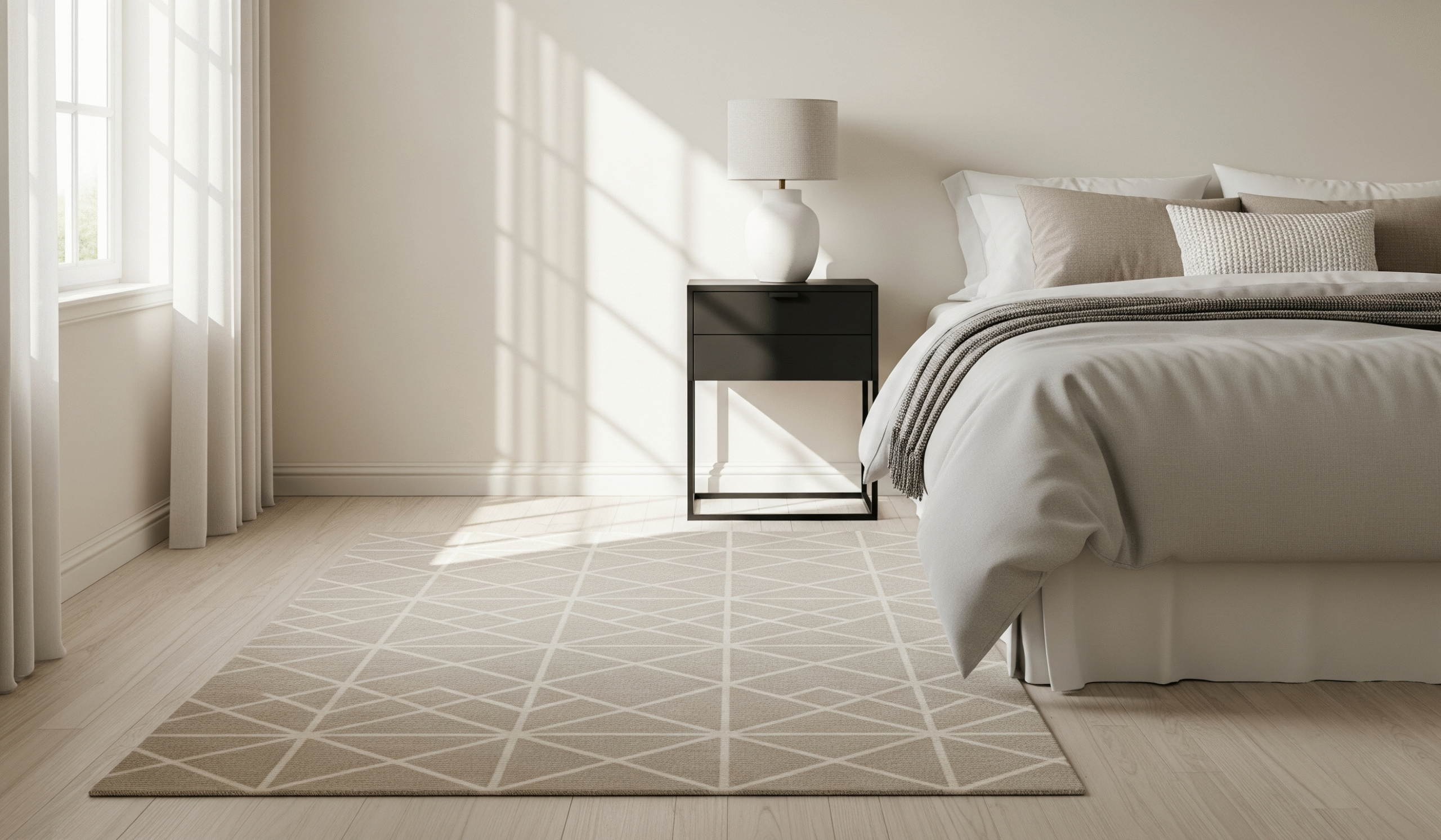
6. Keep Clutter at Bay
One of the key principles of minimalism is maintaining a clutter-free environment. This doesn’t mean your room has to be empty, but rather that everything has its place. Built-in drawers under the bed, hidden storage ottomans, or wall shelves can help keep surfaces clear.
In the example room, the floating shelves serve as both decor and storage, holding books, a small plant, and a few collectibles.
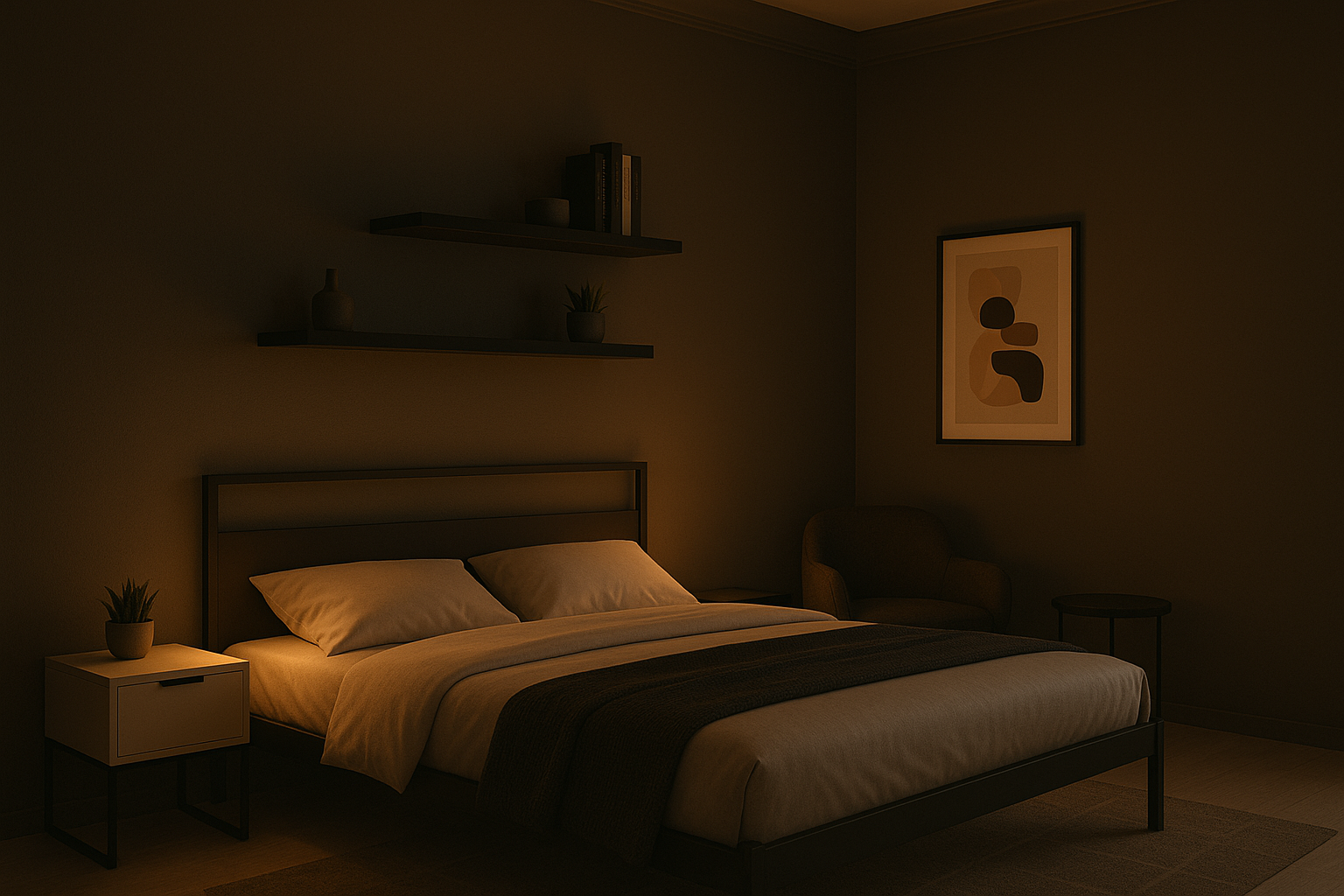
7. Add Personal Touches
While minimalism often leans toward a universal style, your modern minimalist bedroom should still reflect your personality. Whether it’s your favorite set of books, a framed photograph, or a unique chair design, these personal touches make the space feel like home.
Even with limited decor, you can create a room that tells your story — one carefully chosen piece at a time.

Final Thoughts
A modern minimalist bedroom is more than just a design style — it’s a lifestyle choice that promotes calm, clarity, and comfort. By focusing on clean lines, neutral colors, functional furniture, and thoughtful decor, you can create a bedroom that’s both aesthetically pleasing and deeply relaxing.
Whether you’re working with a small space or a spacious master suite, the principles of modern minimalism can help you design a room that’s timeless, functional, and uniquely yours.
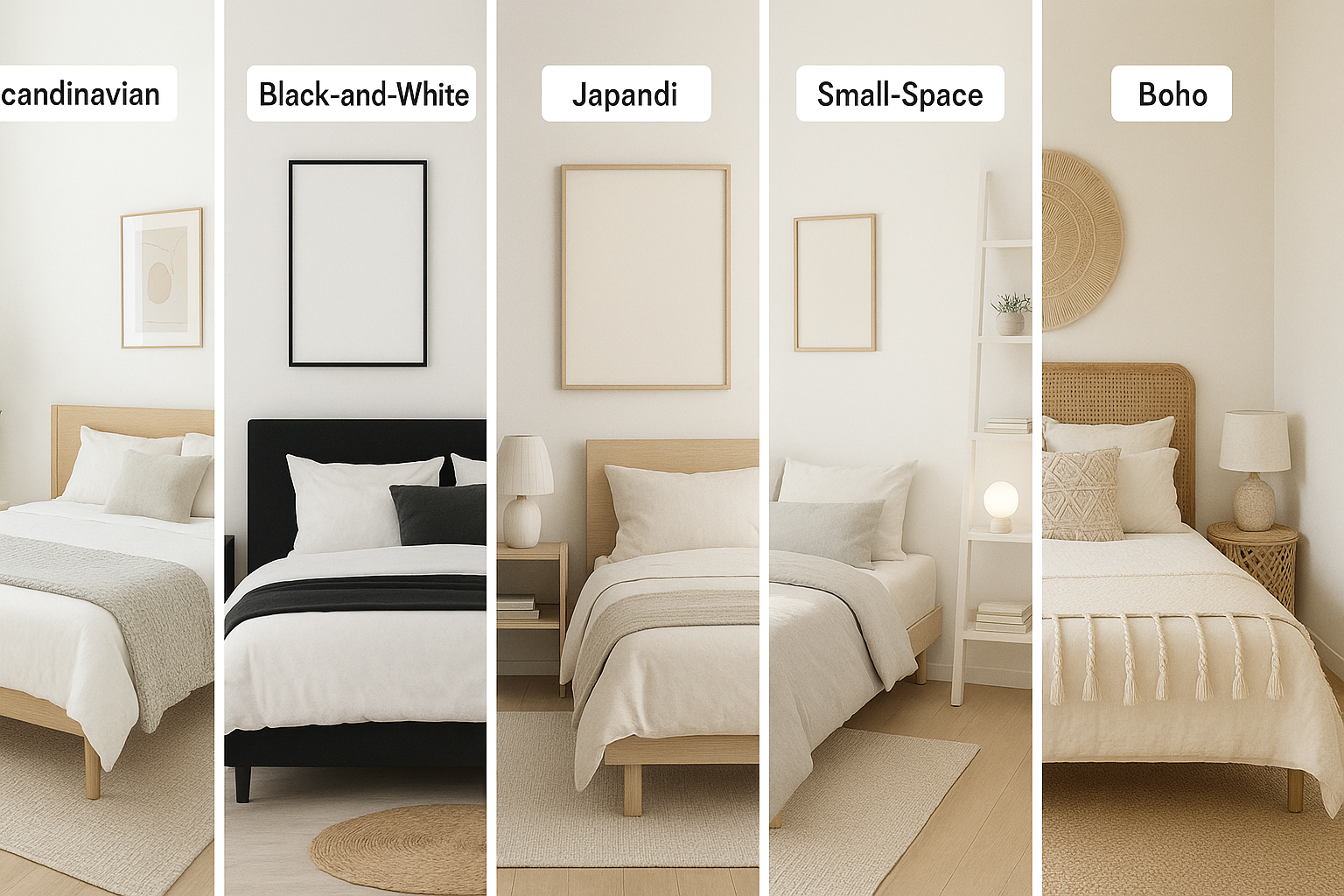
“Minimal Bedroom Ideas: Transform Your Space into a Calm and Stylish Sanctuary”
In today’s fast-paced world, the concept of a minimal bedroom has become more than just a design trend—it’s a lifestyle choice. Embracing minimalism in your sleeping space can reduce visual clutter, promote restfulness, and create a calming atmosphere that supports mental clarity and emotional wellbeing. Whether you’re furnishing a small apartment, renovating a master suite, or simply looking for a way to simplify your surroundings, the principles of minimalist design offer timeless inspiration.
In this article, we’ll explore five beautiful minimal bedroom styles—each showcasing how simplicity can be incredibly stylish.
1. Scandinavian-Inspired Minimal Bedroom
Scandinavian design is the poster child of minimalism. Known for its functionality, light color palettes, and natural textures, this style creates a calm and welcoming space that’s perfect for relaxation. A Scandinavian-inspired minimal bedroom typically features a low-profile wooden bed, soft white or beige linens, and accents like wooden side tables and a simple ceramic vase with fresh greenery. Large windows and sheer curtains let natural light fill the room, making it feel even more open and breathable.
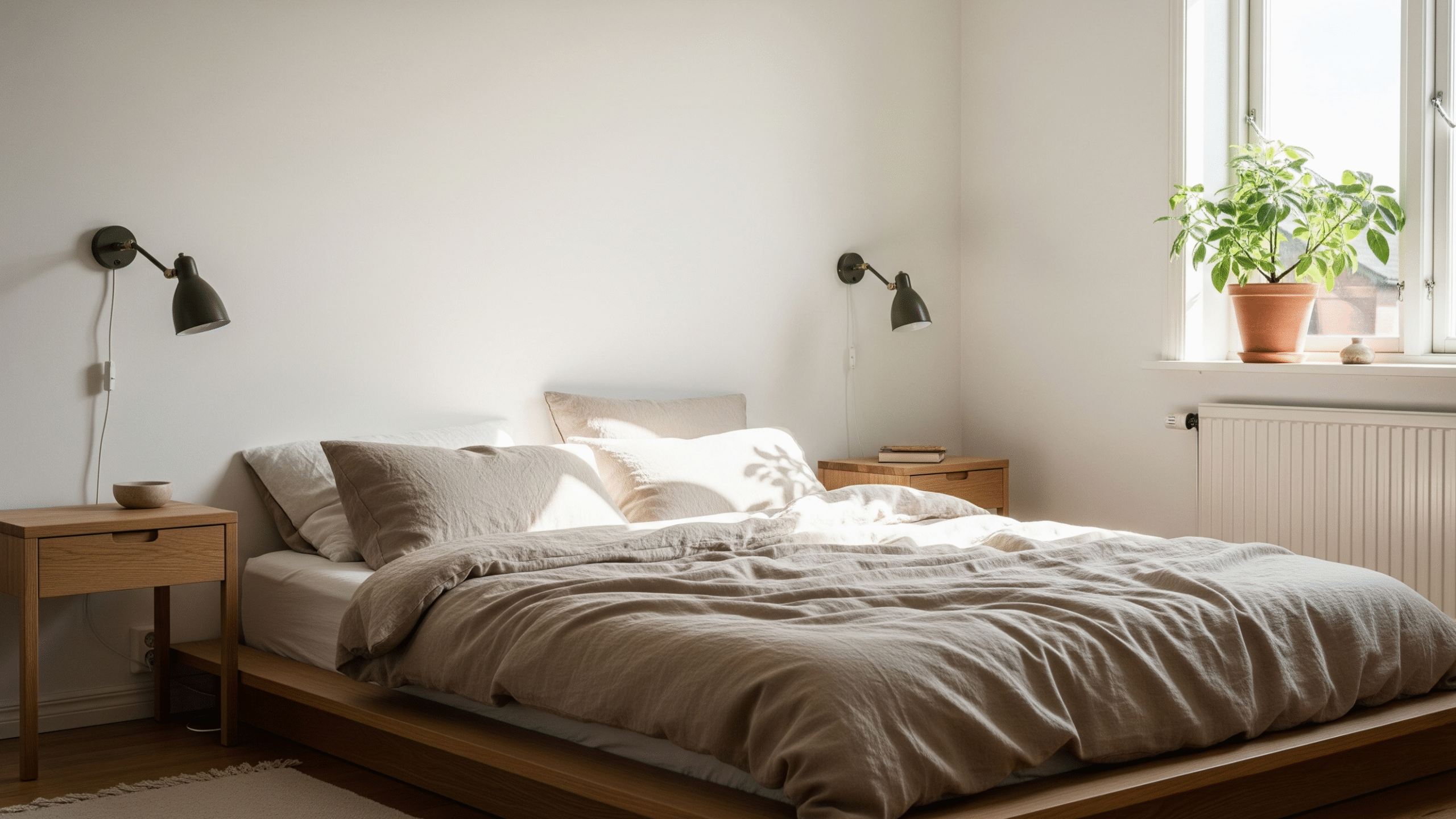
2. Black & White Minimalist Bedroom
For a bolder take on minimalism, the black-and-white aesthetic creates strong contrast while maintaining a clean and uncluttered look. This design choice is ideal for those who prefer a more dramatic and modern vibe. A black accent wall behind a white bed can serve as a stunning focal point, complemented by simple black-framed artwork, white bedding, and black lamps or sconces. The absence of color enhances the sophistication and allows each element to stand out.
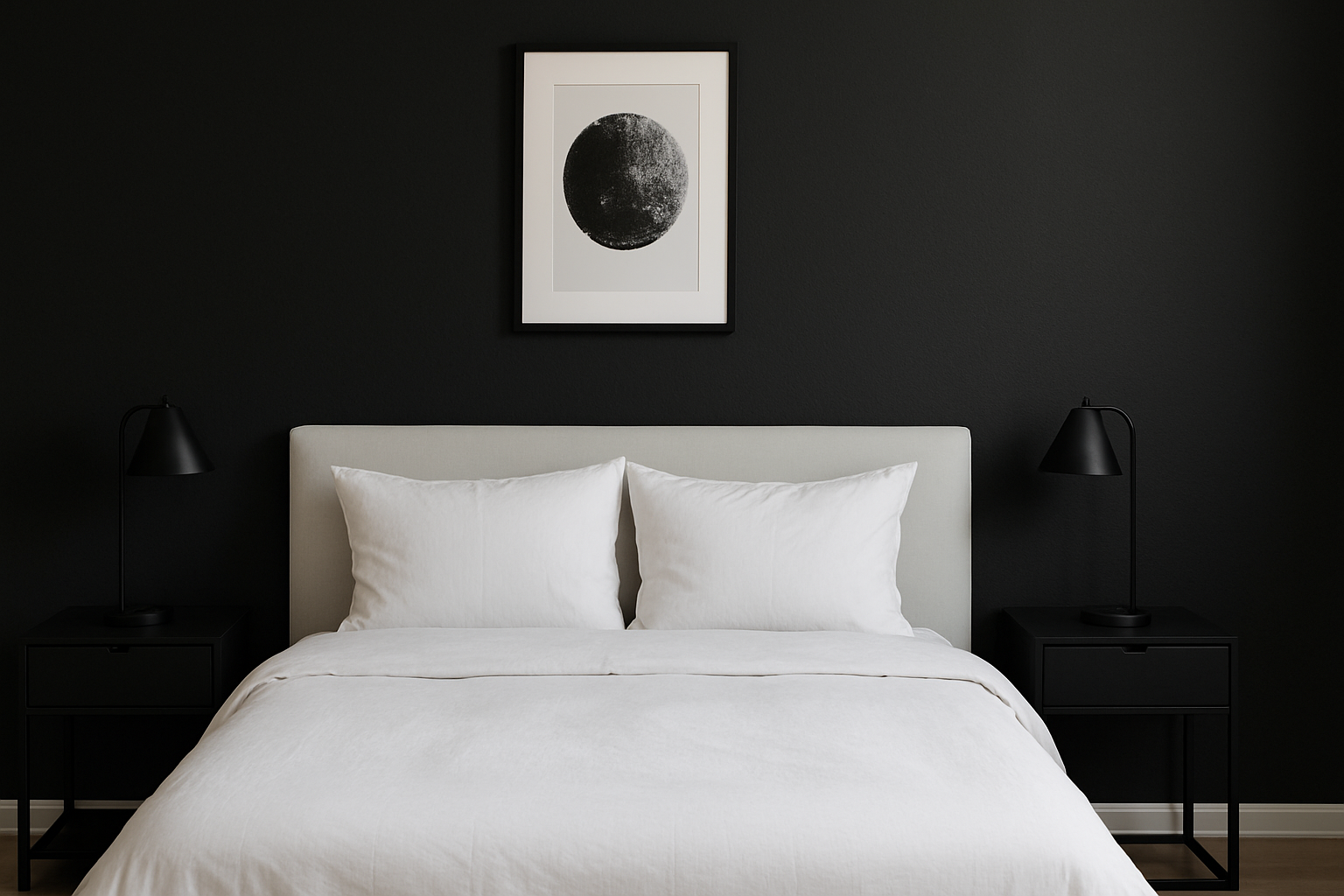
3. Japandi Minimal Bedroom
Japandi style merges the tranquility of Japanese design with the functionality of Scandinavian decor. Think of a warm and earthy color palette, low furniture, and a balanced layout. A Japandi minimal bedroom often includes natural wood floors, a futon or low-profile bed, linen sheets in soft greys or taupes, and a bamboo or rattan pendant light. The space is carefully curated for balance, peace, and practicality—perfect for those seeking intentional living.
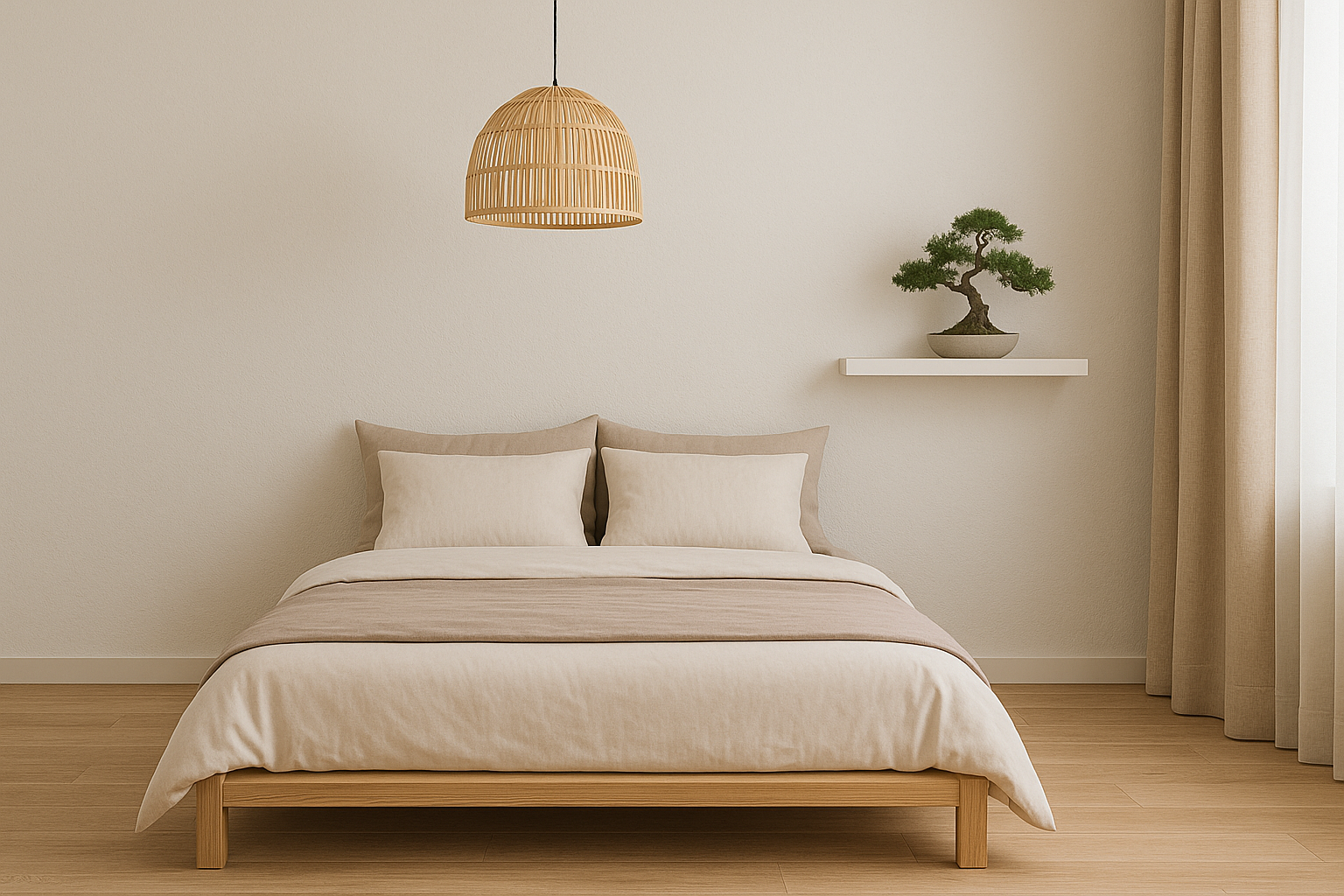
4. Minimal Bedroom for Small Spaces
Living in a compact space doesn’t mean sacrificing style. A minimal bedroom in a small room can feel surprisingly spacious when designed smartly. The key lies in limiting furniture to the essentials, using multi-functional pieces like storage beds or floating nightstands, and maximizing light with mirrors or window treatments. Keeping the color scheme soft and neutral also helps open up the room visually.
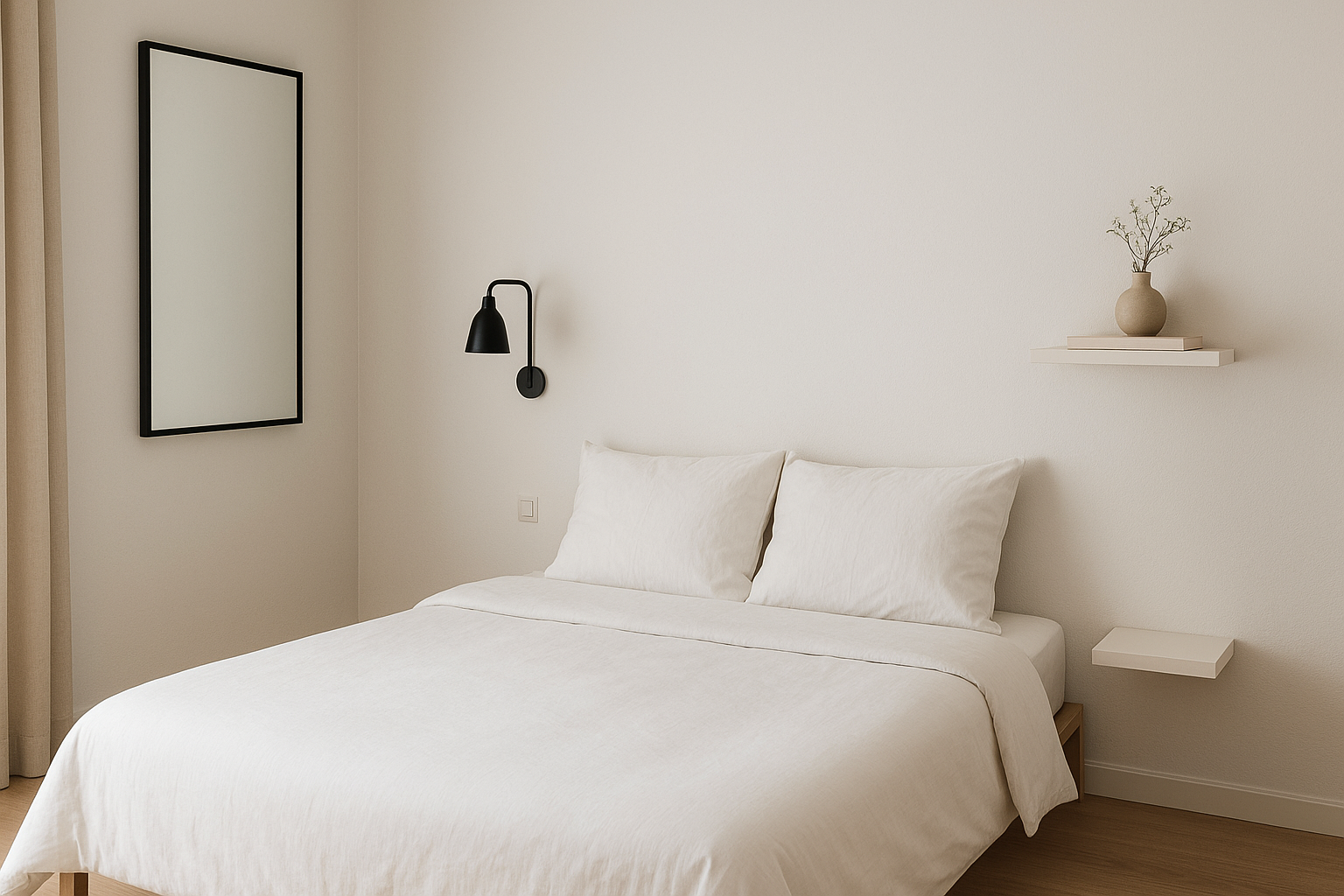
5. Boho Minimalist Bedroom
Minimalism and bohemian design might seem like opposites, but when blended thoughtfully, they create a uniquely cozy and calming space. A boho minimal bedroom focuses on neutral tones, natural materials like jute and rattan, and subtle decorative layering. Instead of excessive colors or prints, it embraces warmth through texture—think pampas grass, soft linen bedding, and mini
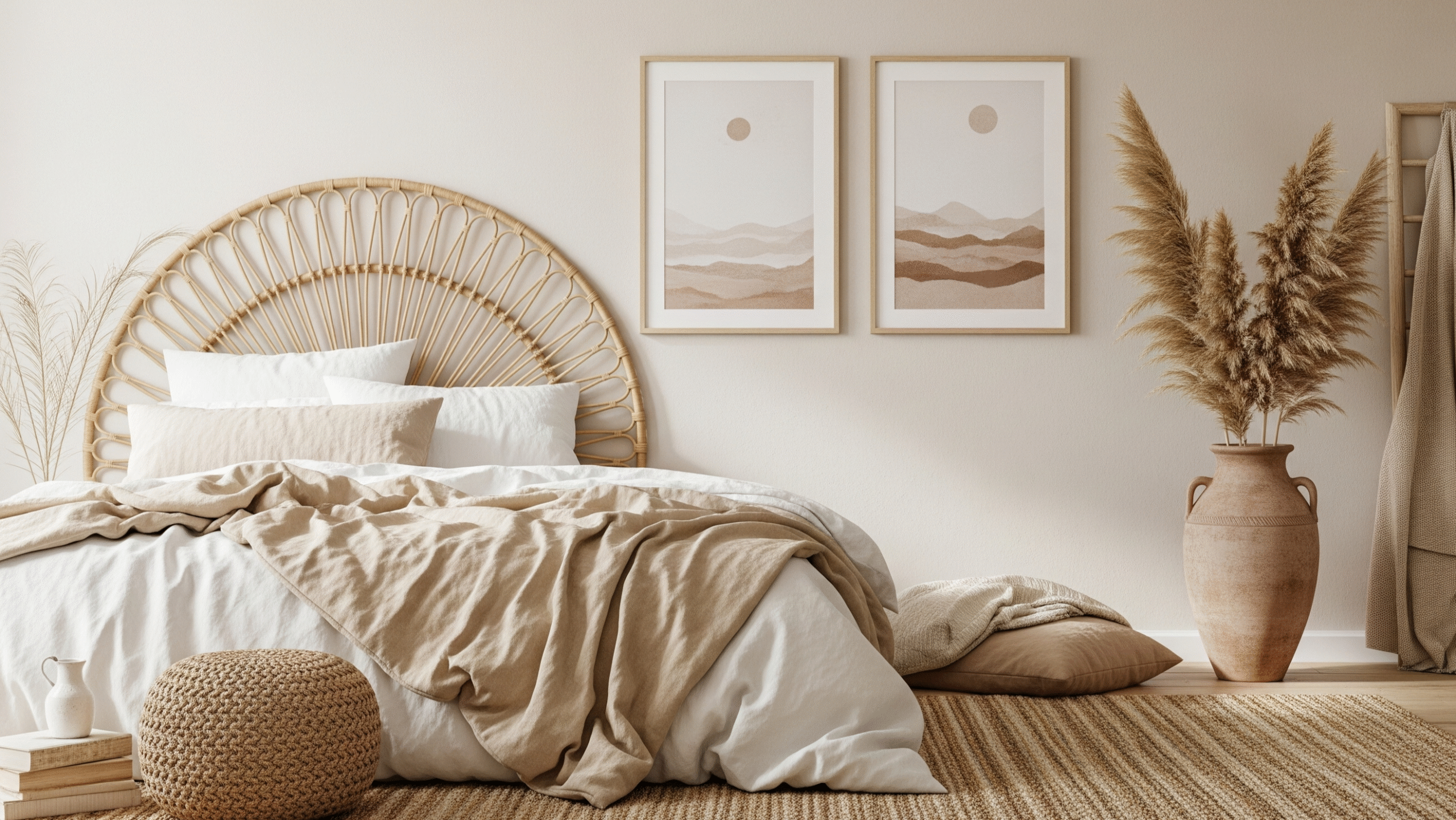
Benefits of a Minimal Bedroom
Less Clutter, More Clarity: Minimalism helps eliminate visual noise, which can lead to better sleep and improved mental clarity.
Easy to Maintain: Fewer objects and furniture mean less cleaning and more time to enjoy your space.
Timeless Appeal: A minimal bedroom never goes out of style, making it a smart long-term design choice.
Final Thoughts
A minimal bedroom isn’t just about what you remove—it’s about what you choose to keep. Each item, color, and texture is intentional, supporting a sense of calm and harmony. Whether you gravitate toward Scandinavian warmth, Japandi balance, or the clean lines of black-and-white modernism, minimalism allows your personal style to shine without the noise.
So take a breath, clear the clutter, and let your bedroom become the peaceful retreat you deserve.